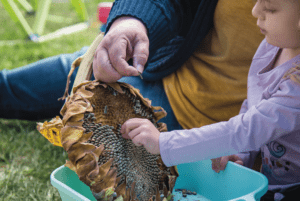How a Coaching Mindset Supports Early Childhood Development
Reflect on the best coaches you’ve encountered in your life — the ones who bolstered you through moments of uncertainty, acknowledged your capabilities and provided unwavering support. These individuals played, and often continue to play, a pivotal role in our personal and professional journeys.
Early education providers serve as the earliest coaches for children as they navigate their developmental milestones. Embracing a coaching mindset, whether you’re a professional “coach” or not, can significantly enhance both your personal growth and the quality of interactions with the children in your care.

Practicing a coaching mindset
Coaching is a collaborative, empowering process. Diane Rindlisbacher, a healthcare leader who specializes in executive coaching, underscores the deep impact of a coaching mindset in cultivating psychological safety, effective leadership, and a thriving organizational culture — all crucial elements for nurturing success among your program’s staff and children. We can integrate her six coaching strategies into our daily interactions:
- Facilitate awareness
A coaching mindset requires ongoing awareness of ourselves and others. When we are present, we can identify patterns and be more sensitive to others’ needs. - Realize the potential
Every individual, from ourselves to our staff to the children in our care, possesses the potential to be even better. Offer continuous encouragement and remain open to possibilities. - Activate your curiosity
Early education professionals are lifelong learners. By continually evaluating and refining our practices, we can deliver our best to both staff and children. Embrace new ideas, challenge assumptions and explore diverse perspectives. - Move into deeper listening
Genuine, undistracted listening fosters trust and strengthens connections with others. - Exercise question thinking
Practice asking open-ended questions to encourage deeper conversations and exploration. Instead of “Did you…?” ask “How did you…?” - Shift your perspective
Being an early education provider is challenging but rewarding work. When facing an obstacle, try shifting your perspective by leaning into curiosity to discover alternative explanations or solutions.
You don’t have to adopt all these strategies at once. Try practicing a few this week and see how it changes your interactions, then add a few more as you get the hang of it.
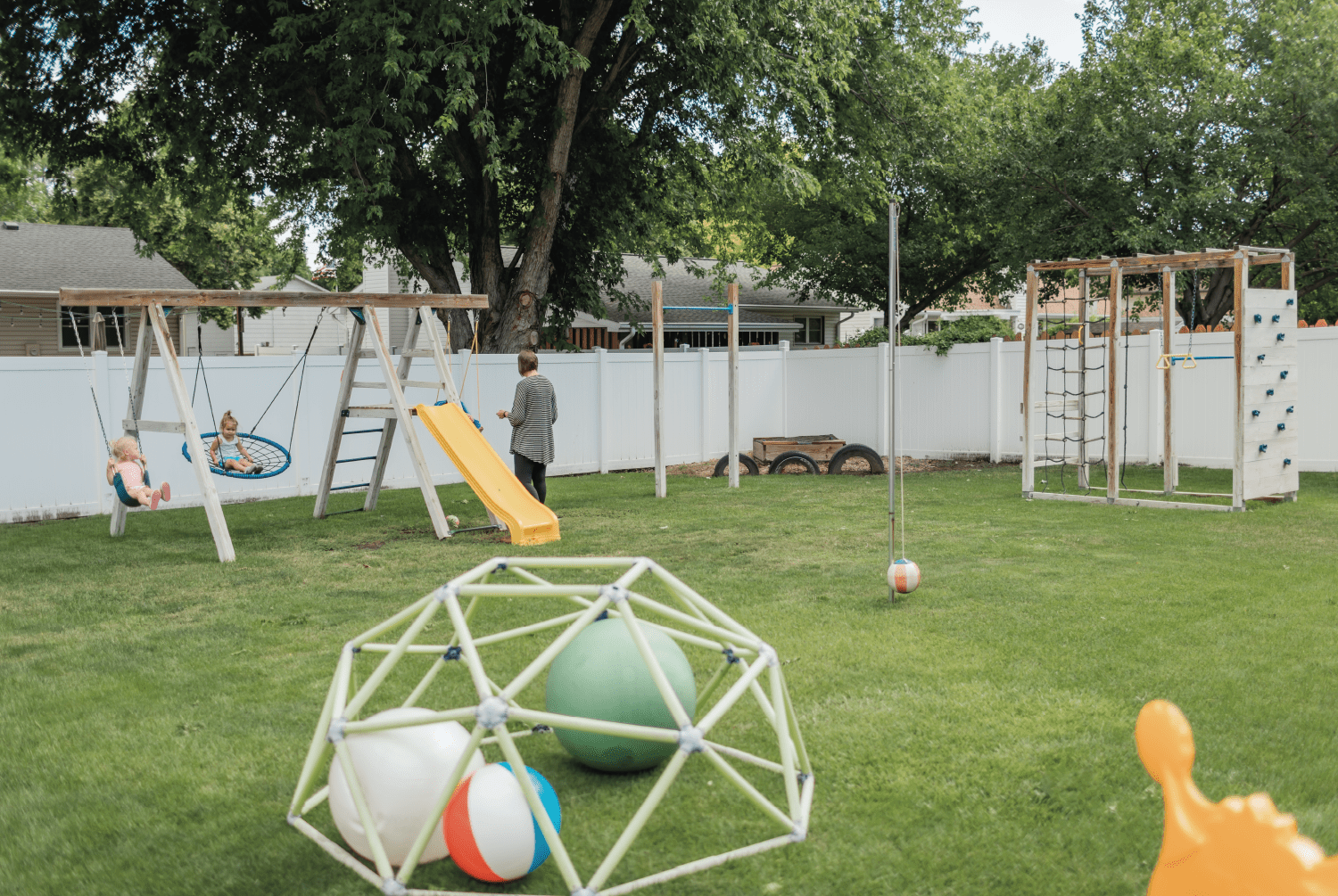
The impact of a coaching mindset on children
Adopting a coaching mindset invites children to be participants in their learning, and in turn, they’ll start to develop the mindset, too.
Gabi Immelman, CEO and founder of e-learning platform Mindjoy, recommends being a “co-researcher” with children, asking them questions rather than only giving instruction. Active listening, withholding judgment and emphasizing progress over perfection all contribute to cultivating curiosity, critical thinking and empathy in children.
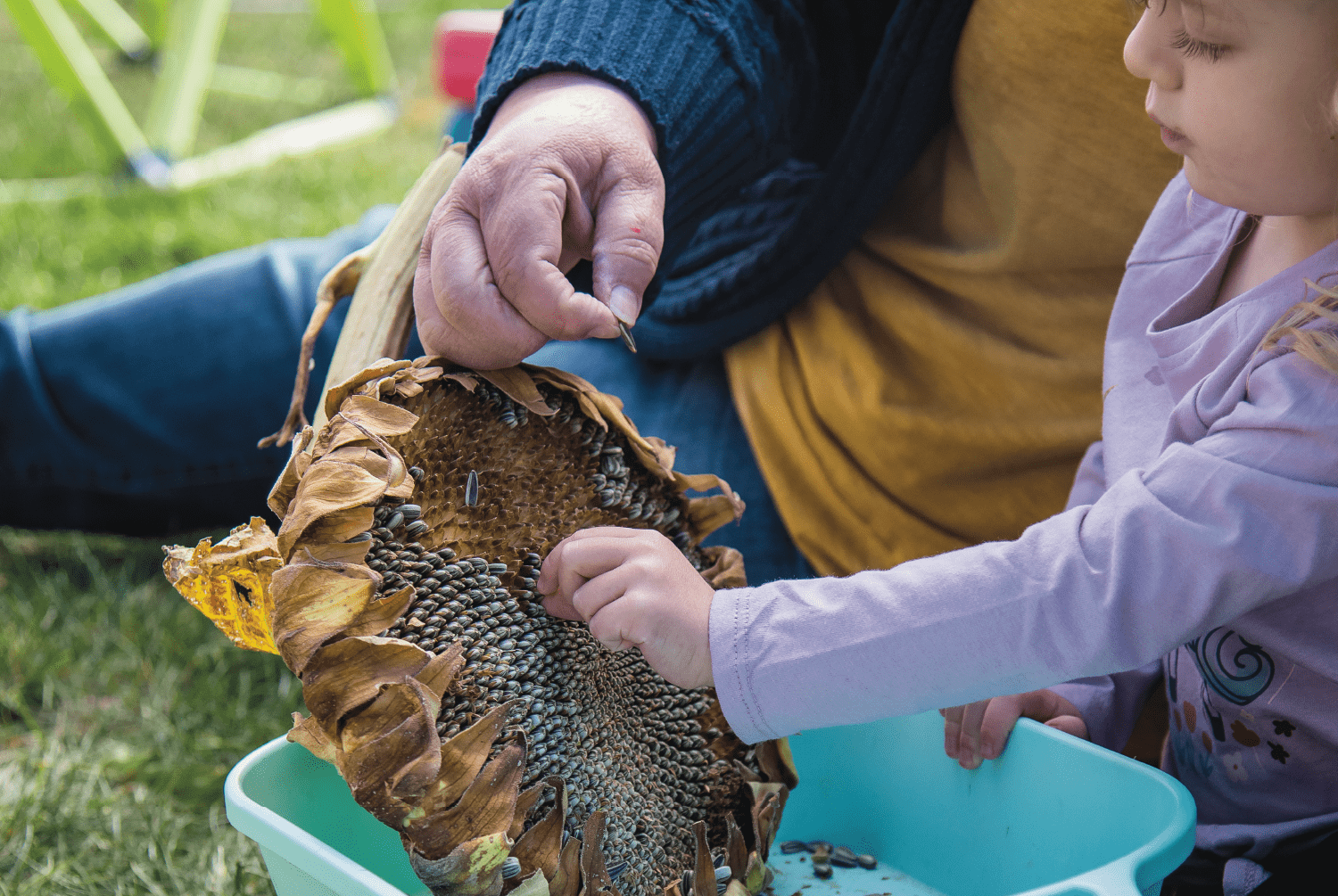
Connect with a coach
At Step Up to Quality, we recognize the transformative power of coaching. That’s why we offer group and one-on-one coaching opportunities for early education providers enrolled in our program. Our specialized, professional coaches help providers navigate through our five steps, ultimately improving educational experiences for children.
Quality Foundations Coaching is a group coaching opportunity available once providers achieve Step 1, facilitated through weekly virtual meetings. Providers join together to learn about high-quality practices, gain motivation, prepare for one-on-one coaching and build a network of support across the state.
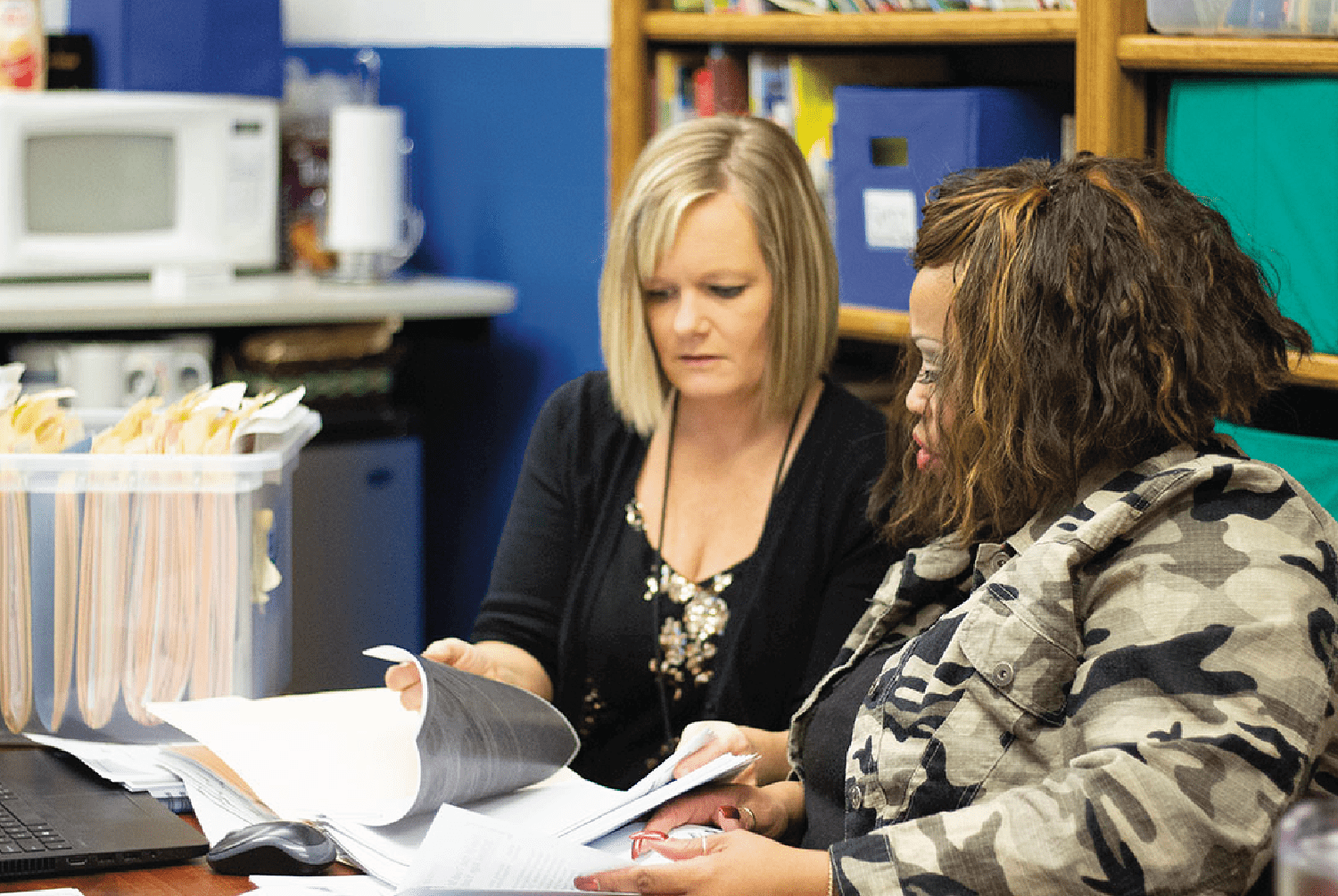
One-on-one coaching is available once programs complete the requirements for Step 2. Your coach will help you identify and maximize your strengths and guide you along your path to quality improvement.
Remember, coaches are invested in your success and are committed to supporting you every step of the way. Coaching isn’t about focusing on weaknesses; it’s about collectively shaping the future you aspire to achieve. Begin your coaching journey today.
Step 5 spotlight: Shannon Hampson’s unconventional approach to high-quality child care
Meet Shannon Hampson, director of Wild Child Daycare in Lincoln, Nebraska. Shannon knows that quality comes in many forms. To her, quality means boosting children’s skills and learning with lots of outdoor play and real-world experiences. Learn how her Step Up to Quality journey complemented and improved her program.
What inspired you to become an early childhood professional?
I’m the oldest of nine kids — I’ve just always helped. I’m originally from Canada, where I had my first child. Then I came here and had my second. It was a very big change from having a year of paid maternity leave to six weeks. So, I decided to stay home.
I was also helping friends with their kids before and after school. People kept asking me for help, so I just kind of fell into it, but it’s always been my thing to take care of kids. I started providing child care, technically license-exempt, in 2012 and became licensed in 2017 when I bought my own house.
I didn’t initially have the name “Wild Child,” but people kept asking me what the name of my daycare was. It made me realize I do have a daycare, don’t I? I spend a lot of time outside and am very into child-led, free play. People remark that my kids always have a lot of energy, and I realized that, yeah, we are kind of wild. And it’s okay to be wild. Wild isn’t bad, it’s fun and exciting. We like new experiences, and we like to spend time in nature.
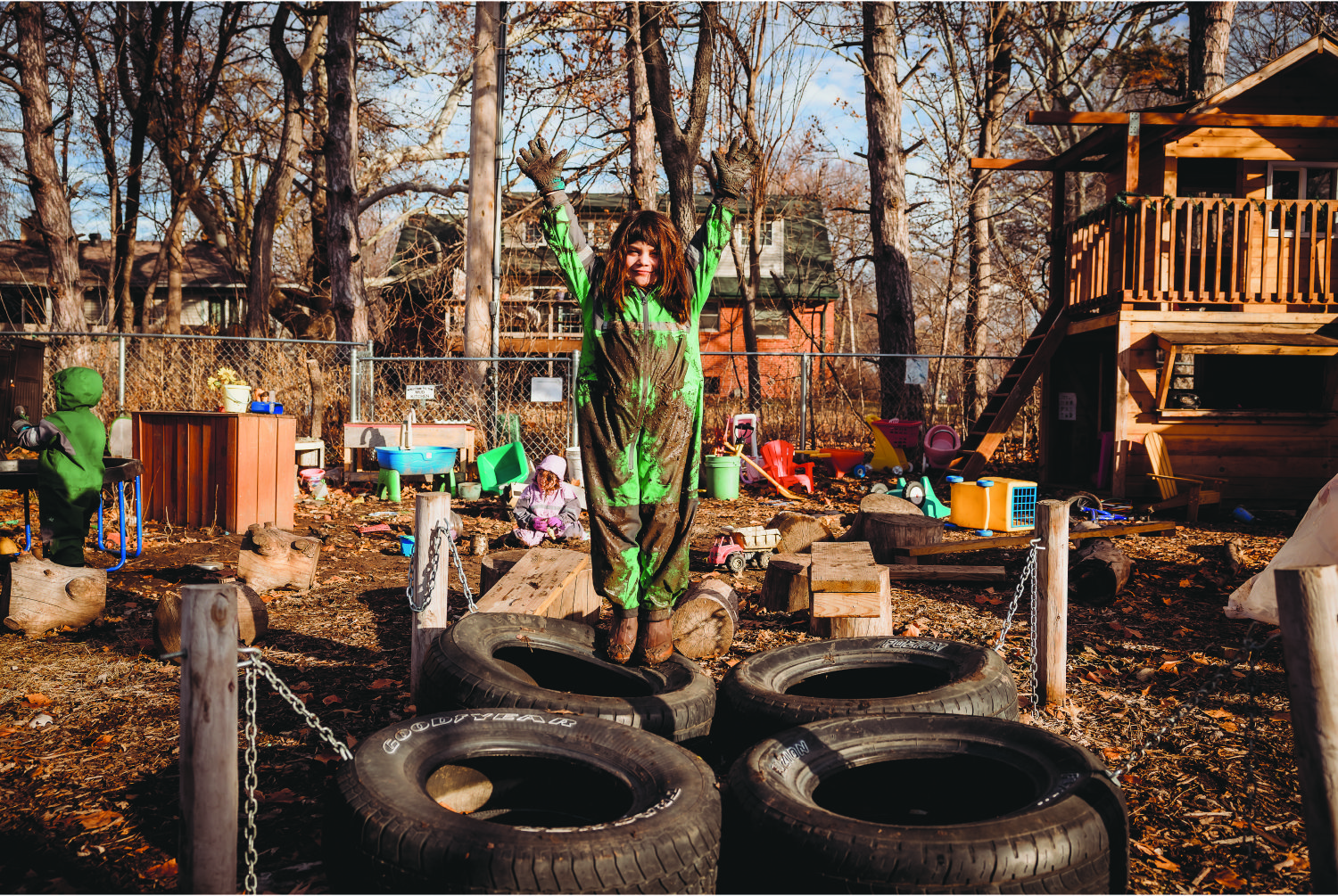
Why do you think these new experiences are important?
They support children’s learning. I can tell a child about a firetruck or show them a picture of one, or I can take them to see a real firetruck. Learning hands-on and being able to experience it is a long-lasting memory. Research shows that if you learn something through play, you can retain it much faster than getting that same information from books and paper.
We play in the rain, we jump in puddles, and we play in the snow. We play in my mud kitchen with measuring cups and wooden spoons where they’re doing math, experimenting and mixing colors. All of this is learning, but it’s not on a worksheet. Each family is different, and if they prefer a different teaching style than I have, that’s okay, and it doesn’t change my quality. Some people value worksheets, others value the quality of outdoor play, and some value child-led play — quality comes in a lot of forms. It’s not a checkbox.
What is your child care philosophy?
I strive to follow my slogan: “Learning through experiences: inside, outside, and beyond.” I provide a child-led interest, play-based program that follows what the children are interested in while providing an integrated nature/outdoor-based curriculum. I believe so much in this that I wrote my own curriculum, submitted it to the Nebraska Department of Education and received approval.
I want children to learn about the world they live in, experiencing it with all of their senses and exploring as much as they can. We meet the members of our community from Miss Ali, the librarian at Around Town Storytime, to our dance teacher Miss Kari, to the city employees who help take care of the parks where we play. At the zoo, we learn about the world beyond our city through the animals and staff. We walk to the Capitol to meet their Senator and learn how our government works. We visit beautiful gardens and engage with the volunteers that take amazing care of them. We learn about growing food at the Southern Heights Food Forest. There are so many local places that we can adventure to for experiences that help us become contributing members of society.
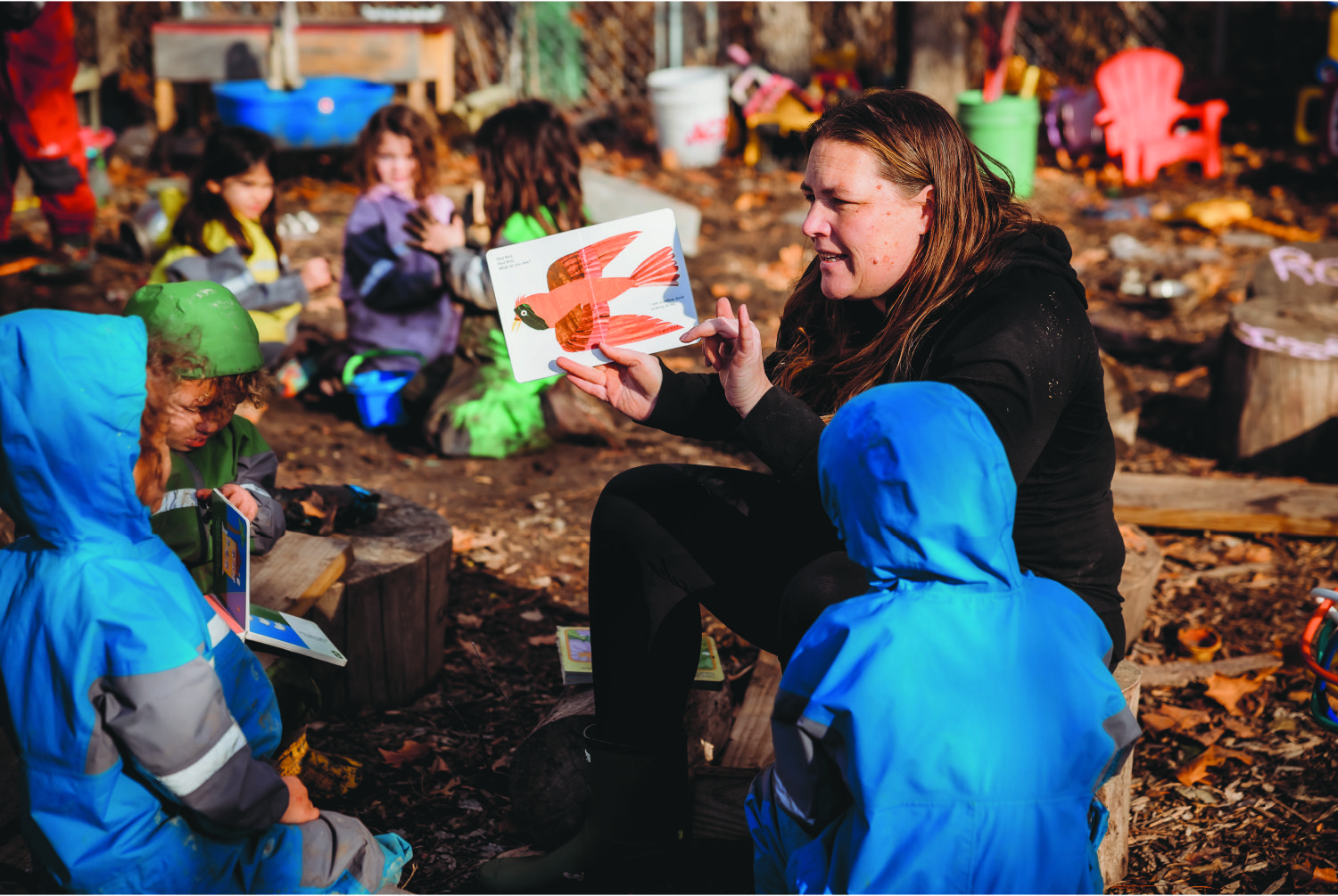
How did you learn about Step Up to Quality? Why did you decide to join?
Honestly, I was skeptical of Step Up to Quality when I first learned about it. I said I would never do it. But I serve a lot of families with low income, and the majority of my children receive child care subsidies. I had a couple of families who were getting close to exceeding the income limits and would not qualify for a subsidy, but there was no way they could afford child care on their own. I wanted to join Lincoln Littles to get additional assistance, but the program required having a Step 2 rating from Step Up to Quality. After some encouragement, I decided to go for it despite my reluctance.
Step 1 was just registration, and Step 2 was training — thankfully online. As a family home provider, I can’t afford to close for a day, and my families can’t afford for me to close either.
I thought I might stop there. But I talked to my coaches and other contacts, and they said it’s not that difficult to get a Step 3 rating. I looked into it, and the pay increase was an incentive for me with subsidy families. It would get me much closer to what families without subsidies pay. One of my friends is also a family home provider, and her philosophy is similar to mine, so we teamed up and went through the process together.
It took a lot of time. I think it’s important for people to understand that it’s not something you’ll get through quickly. I spent many hours on paperwork because as a family home provider, I know a lot of things, like our policies and drills, but I don’t necessarily write them down. Getting everything on paper makes me feel more professional, and it also allows me to show the quality of my program, even if I do things differently.
How does it feel to be rated at a Step 5 level?
When I secured a Step 5 rating, it felt like I was able to prove that all quality doesn’t fit in a box, and it strengthened my belief in my program. Whether I would have received a 5 or not, I believe I’m a quality program. And no matter what, there’s always room for improvement.
My family home provider friend and I actually got our results the same day, so we took our kids to a party store, bought balloons and party hats, and they picked out celebration items to take to the park.
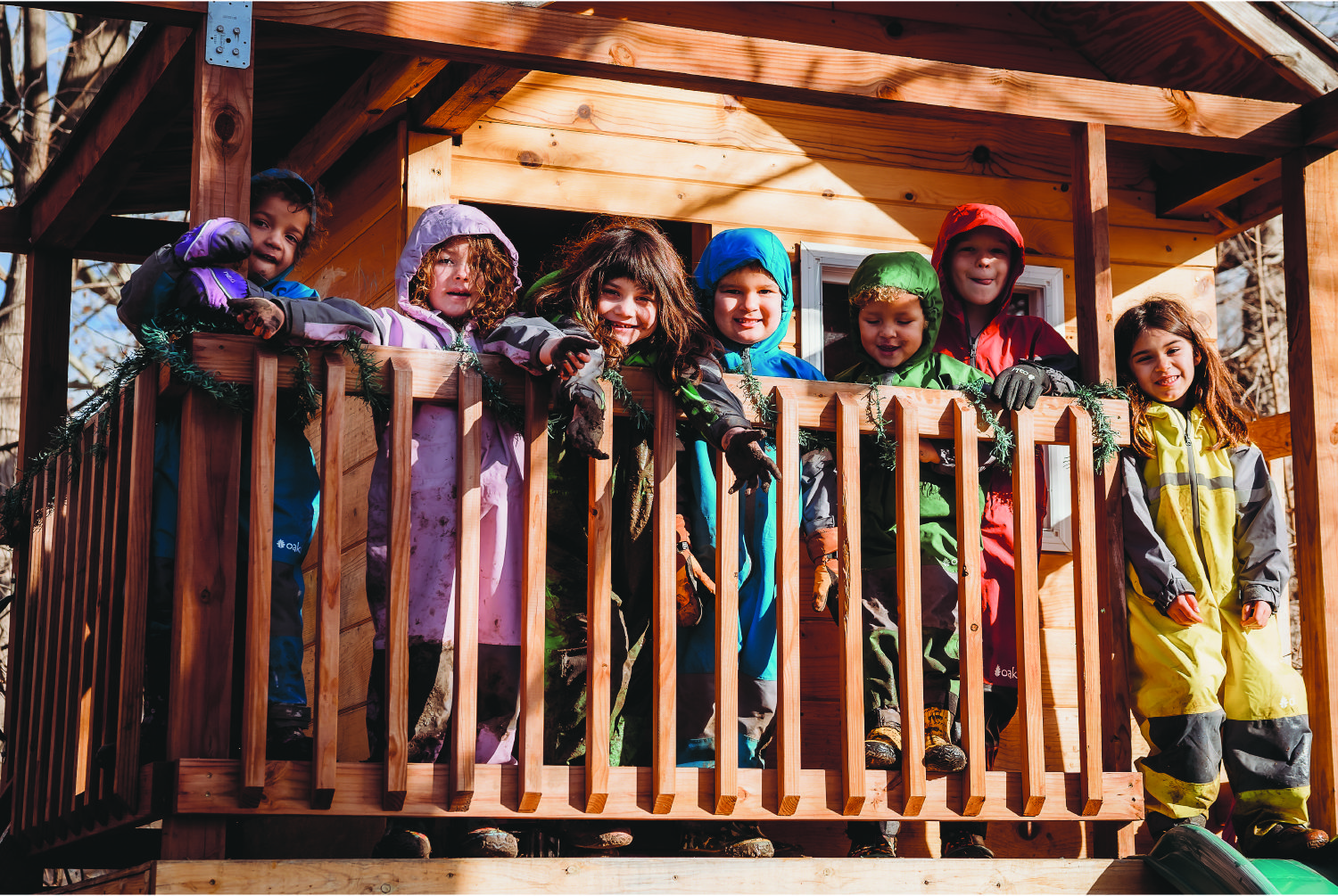
In what ways has Step Up to Quality helped boost the quality of your child care practices? What have you learned and implemented?
CLASS being offered as an observation tool for family home providers made a huge difference. CLASS is my style of quality, focusing on the children and interactions with them. I want to prepare the kids in my care for the world, and these are their most important years of learning. If I can equip them with social-emotional skills, coping skills and resilience, that’s going to help them succeed in life. And those skills are built through interactions, experiences, making mistakes and trying again.
Step Up to Quality also helps family home providers remember they’re a small business. When your business is your home, it’s easy to be casual about it. But we’re a small business, and to prove our quality, that includes paperwork. I feel like I’m a real business now. If anyone said I wasn’t a business, I’d laugh, because it’s all documented.
Some providers haven’t written down their philosophy, and even if you have it in your mind or have an idea of how you want to provide care, writing it down formally creates confidence: Yeah, this is me. This is my program.
Did you have a Step Up to Quality coach? How was the experience?
I’ve had several coaches through other programs who all helped prepare me for Step Up to Quality. I also had a Step Up to Quality coach who supported me when I had questions. I would encourage people to use a coach, especially if they are just starting out in the child care profession. They’re there to help you as much or as little as you need, to motivate you and to keep you accountable.
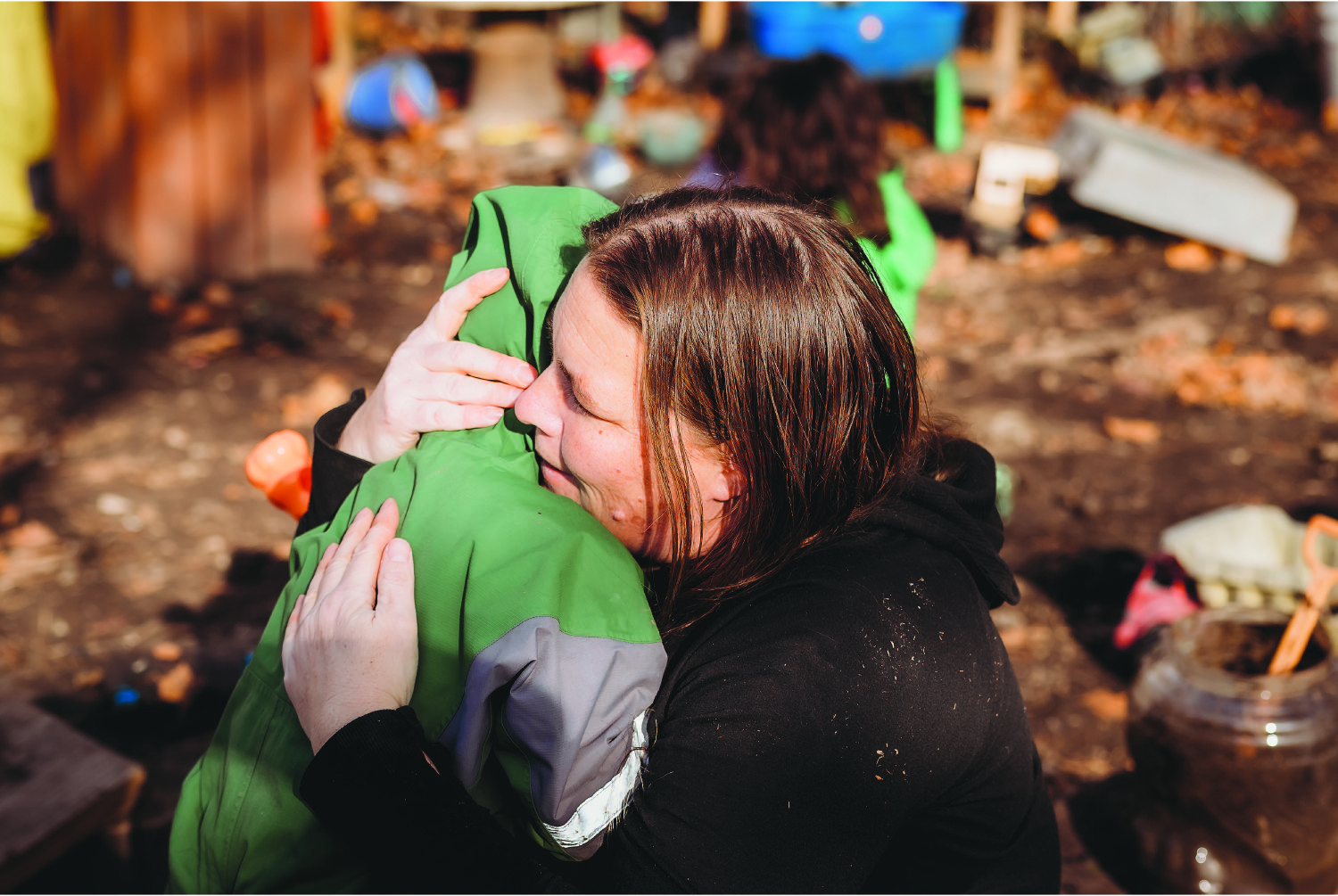
What words of encouragement do you have for providers who are considering joining Step Up to Quality or are still working through the steps?
Don’t be afraid to ask. Don’t be afraid to push a little. And be ready to be a bit uncomfortable. When I did my baseline observation, I cried after getting my results, and I came around to being okay with it. I think it’s important to be prepared to be upset about your observation scores. You have to realize that you won’t get certain points, and you’re not expected to get a perfect score. It doesn’t mean you’re less quality, it means your quality may be different.
I also encourage people to reach out to other providers. If you’re part of another group or have a coach, talk to them about Step Up to Quality. It’s okay to be nervous, it’s okay to be frustrated, and it’s okay to shed a few tears — to me, these are all signs of growth, which is ultimately the goal of Step Up to Quality. Even if you think Step Up to Quality is not for you or it’s unattainable, you can do it. It isn’t easy, but that doesn’t mean it’s not worth it.
And finally, don’t forget that you’re probably already providing quality care, and there’s always room for improvement. I wish I had thought this way at the beginning of my journey — these are just guidelines to help improve my quality.
Step 5 spotlight: Sara Voss shares her perspective from different sides of Step Up to Quality
Meet Sara Voss, an administrative coordinator at Fingerprints Child Development Center in Lincoln, Nebraska. Seasoned in the early childhood field, Sara shares her experiences working with Step Up to Quality throughout her career as a center director, administrative coordinator, observer and coach.
What inspired you to become an early childhood professional?
I’ve always loved kids. I studied elementary education and early childhood development in college. After graduation, I taught first grade for about five years at a school with students from low-income households. Witnessing the barriers they faced, I started focusing on the importance of having a solid learning foundation from birth, which led me back to early childhood.
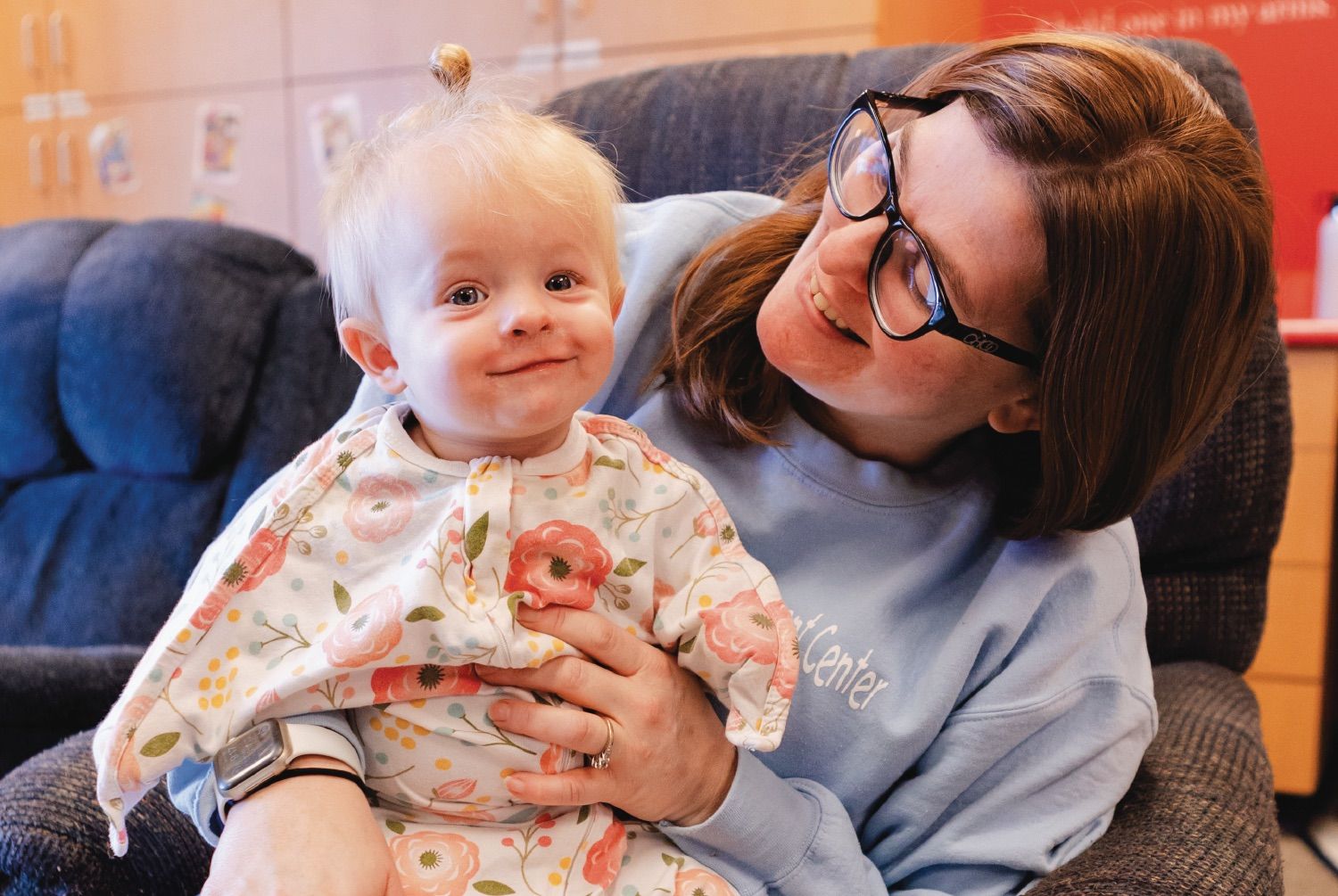
What is Fingerprints’ child care philosophy?
We strive to be a safe, Christian environment that encourages the growth and development of each child. We foster creativity and develop problem-solving skills, and investigation through play is supported by well-trained, caring staff who love children. Families are highly encouraged to participate and share in activities both inside and outside of the classroom.
Tell us more about the work you do at Fingerprints as an administrative coordinator.
As an administrative coordinator, I’m responsible for staff development, child development and program quality. There are three of us on the administrative team, and we each have different strengths. For me, my strength is working in the classroom and focusing on teachers. For others, it’s the budget and payroll. It helps us not be spread too thin.
Fingerprints opened in 2004, and I’ve been there for about two years. Prior to this program, I was the director of another center for 17 years. Both Prudence, Fingerprints’ director, and I had heard about Step Up to Quality through the directors’ association we were a part of. It seemed like a great program to join — we’re always looking for ways to improve and give our children and families the highest care possible, and Step Up to Quality gave us a path to follow.
I’m also a Step Up to Quality coach and an observer, so I’ve been able to give our staff extra coaching as needed.
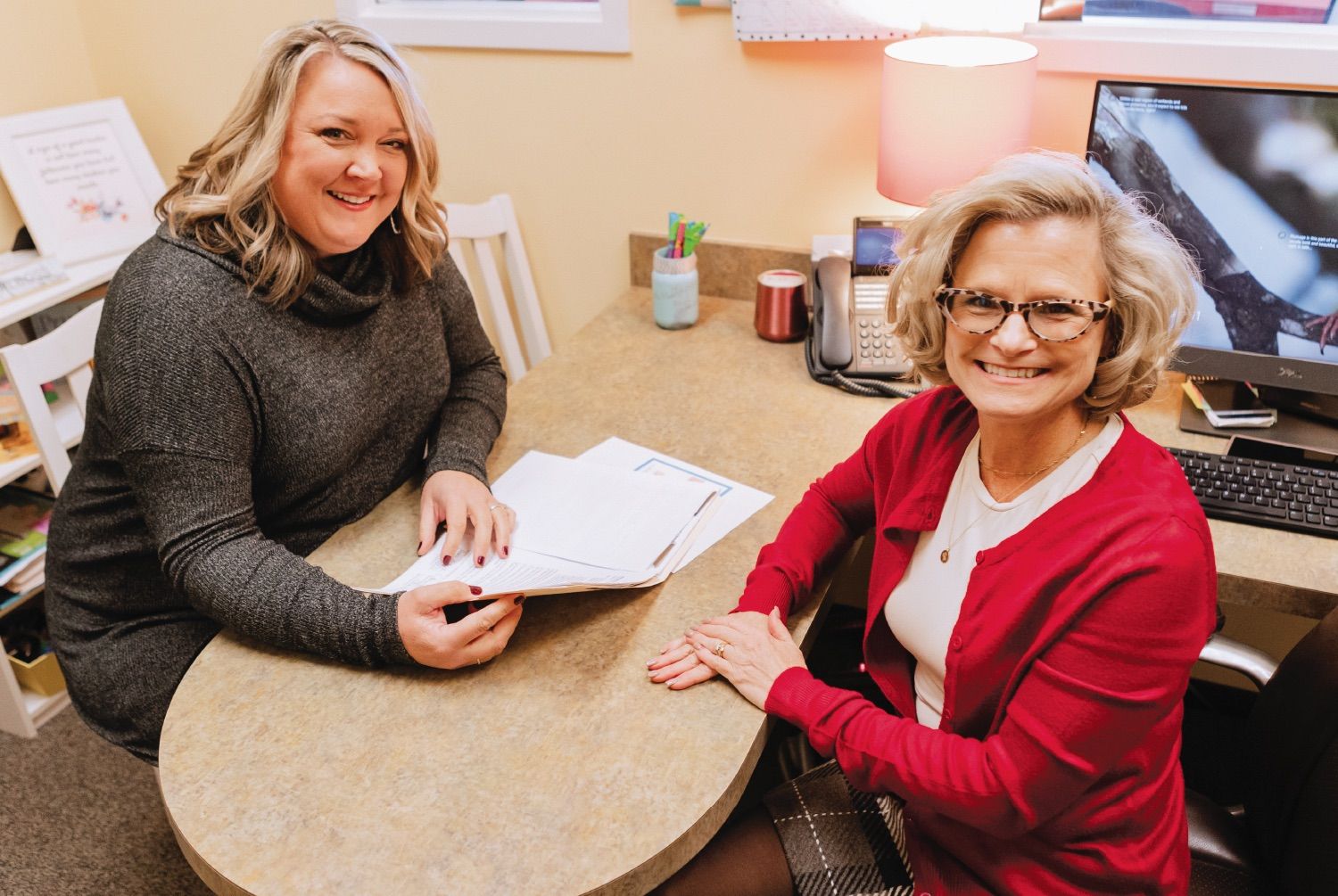
When did you decide to become a coach?
It was about two years ago. I was looking to do something different after being a director for 17 years. I went through Step Up to Quality with my previous program and had a great experience with my coach, so I knew a bit about the role. It was a really good fit for me at that time, and I’ve continued to do it.
Did your center work with an additional Step Up to Quality coach?
Yes — I was an on-site coach, but it was nice to get another perspective from our coach, Jen. She focused on the Environment Rating Scale, and I focused on CLASS, so I felt like our staff got a good picture of what “quality” really is.
We weren’t sure if we were going to do observations, but Jen really pushed us to try it out, so we decided to go for it and surprised ourselves with how well we did.
It’s always intimidating to have an outside person coming in to observe your program. I think our staff was a little more accustomed to it because I had been doing several observations in their rooms, so they knew what to expect. We took the pressure off by telling them to just go through their normal day, and they happened to do really well.
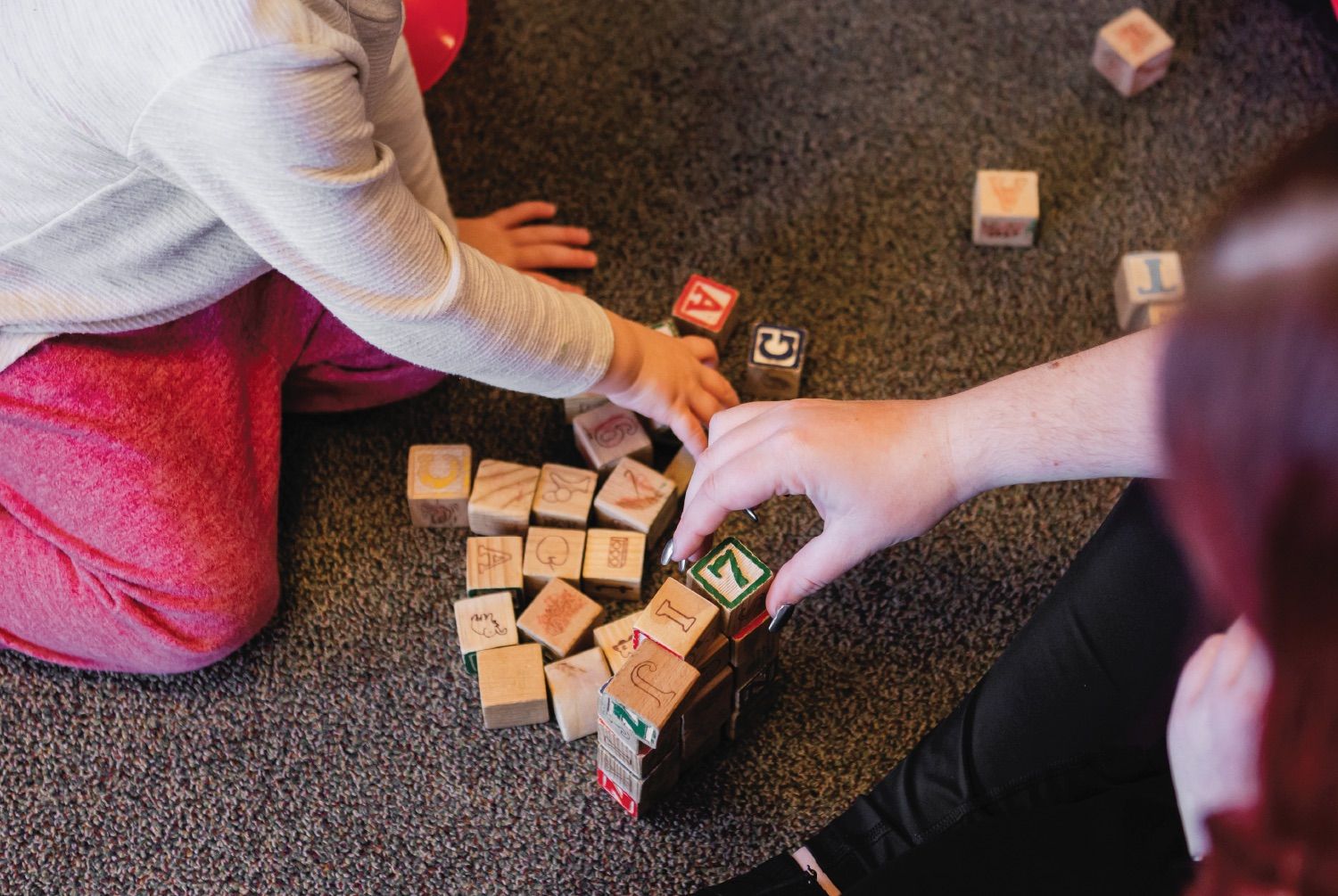
How does it feel to have Fingerprints rated at a Step 5 level?
We feel really proud to have earned a Step 5. We’re always critical of everything we do, so it was nice to get that recognition. We had a week-long Step 5 celebration including t-shirts and lunch for the staff, cookies for the families and a visit from Kona Ice.
In what ways has Step Up to Quality helped boost the quality of your child care practices? What have you learned and implemented?
We were at the point where we needed to get new curriculum for our center, and Step Up to Quality helped us set those deadlines and pushed us to make decisions while our staff went through the Step Up to Quality process.
Our staff has always been really good at planning intentional activities to keep our kids engaged and learning, but this process reminded us how crucial it is for teachers to have time to plan and collaborate. We added some staff work days and more time in their schedules to focus on planning intentional opportunities for the children.
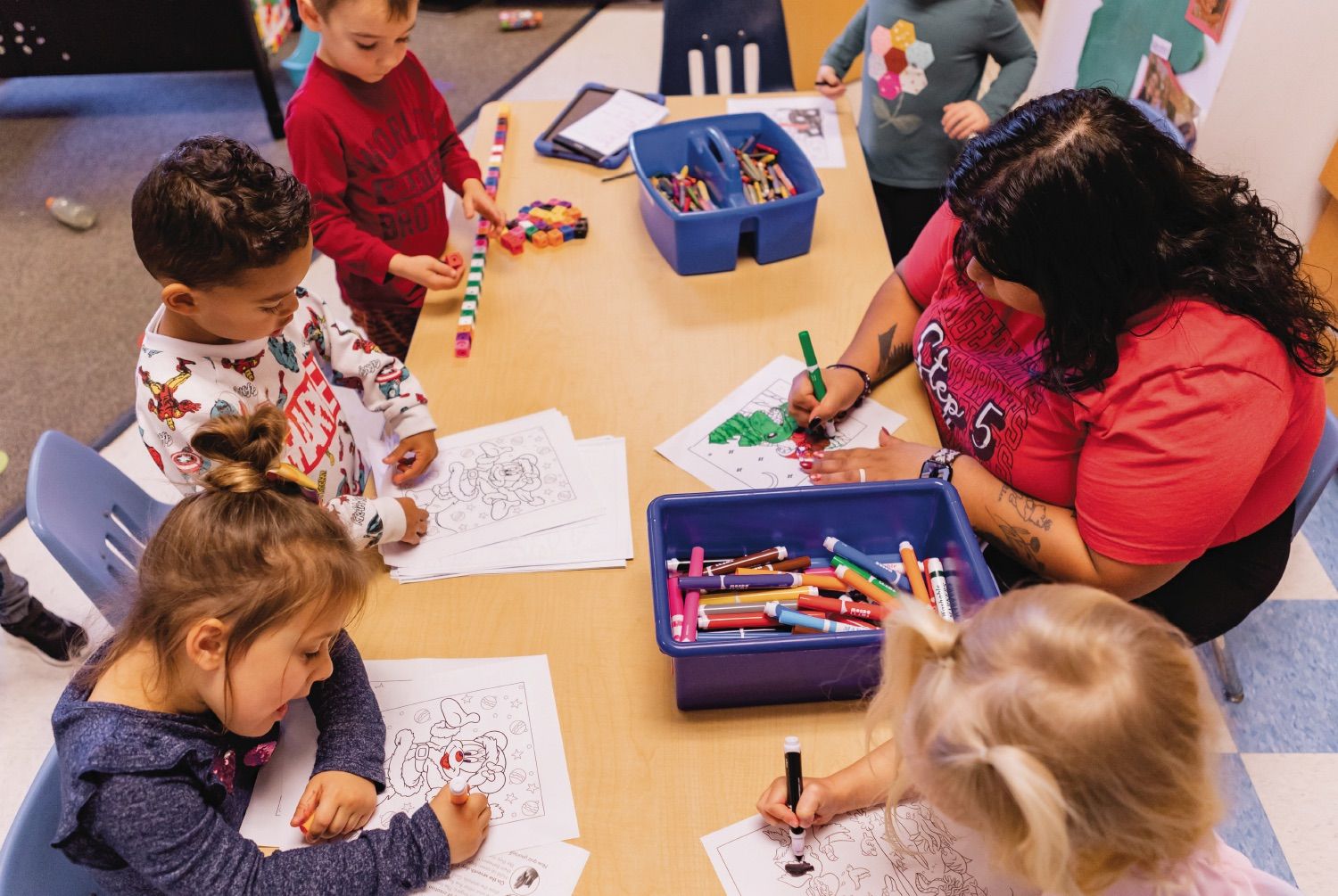
What words of encouragement do you have for providers who are considering joining Step Up to Quality or are still working through the steps?
Don’t be overwhelmed with the process. Go through the Rating Request Form and start gathering your evidence — you may be surprised by how much you’ve already done.
Step 5 spotlight: Marti Spitz discusses quality care and continuous improvement
We recently chatted with Marti Spitz, director of Beginnings Early Development Center in Hastings, to learn more about her Step Up to Quality journey and how the process has fostered continuous quality improvement at her center.
What inspired you to become a child care provider?
I didn’t actually set out to be a child care provider. I was a nurse, and when I had my youngest son, child care was difficult to find. So, I decided that I would leave my nursing career for a short time and stay home with him.
While I was at home, I had some other nurse friends who needed care for their kids, and I said, “Hey, I’m at home anyway, so just bring them over!” It was one person, two people, three people, and before I knew it, I thought, “Well, maybe this is what I need to be doing!” Within the first year, I had a wait list. Within the first two years, I decided to expand to a center. That was 20 years ago.
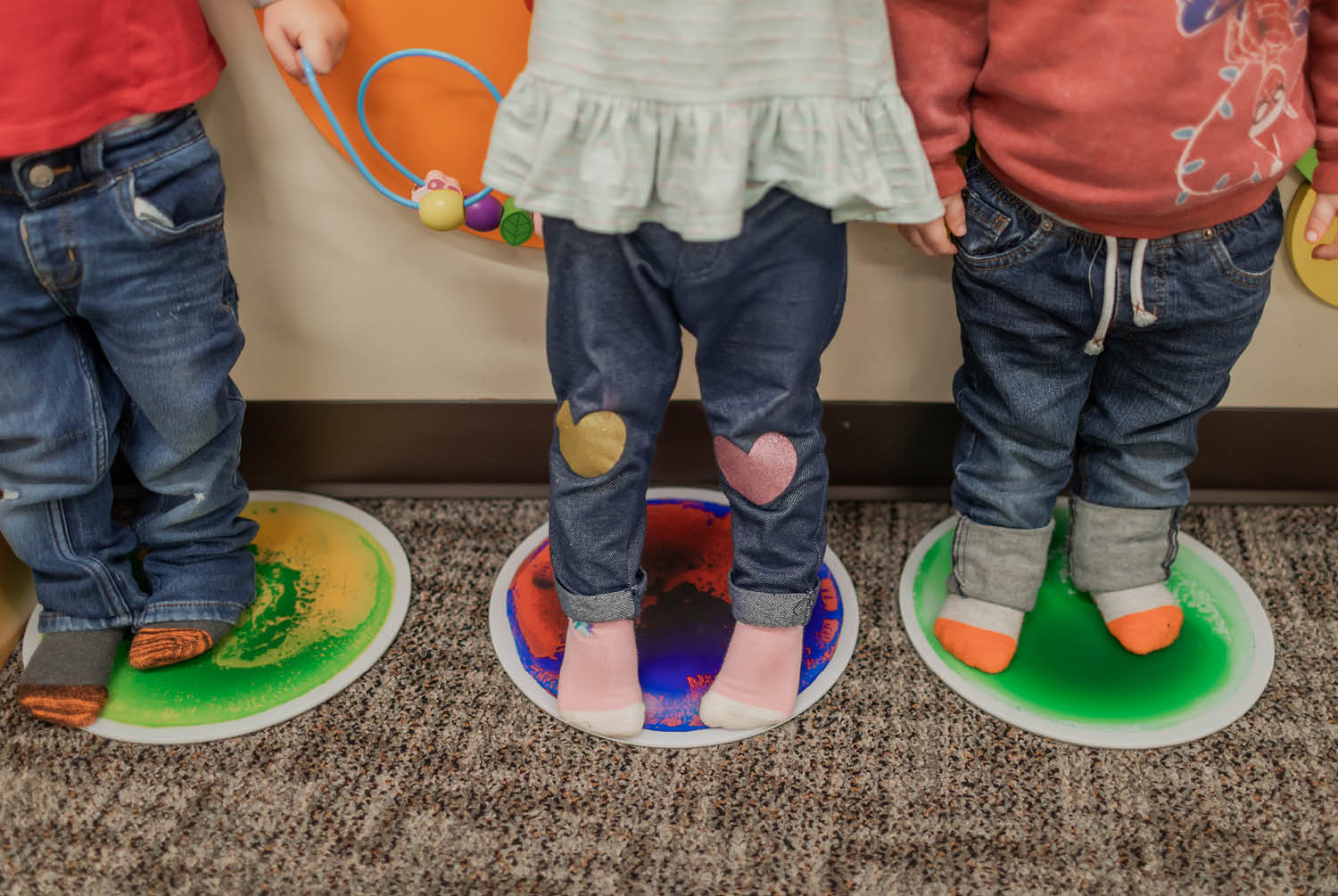
What is your child care philosophy?
Our mission statement is to deliver excellence in child care services, surpassing the standard of care, and a nurturing environment where children are safe, happy, growing and learning.
We know that quality child care provides the foundation for the rest of a child’s life, and that has always been at the forefront for us. It’s not about how many children you can fit in your building, it’s about the quality of care you can give them.
How did you learn about Step Up to Quality? Why did you decide to participate?
When Step Up to Quality first came out around 10 years ago, I was a little hesitant at first because it was new. Our Infant/Toddler Quality Initiative coach, Jo Smith, introduced it to us because she knew our goal was to provide quality child care. She’s now coaching for Step Up to Quality, too.
Step Up to Quality involves a lot of trainings, so it can be difficult to get started with staff turnover. It took me a long time to get to the point of having consistent staff, and I think that’s the biggest barrier for the directors I’ve spoken with. But once key people are in place, you can move through steps rather quickly.
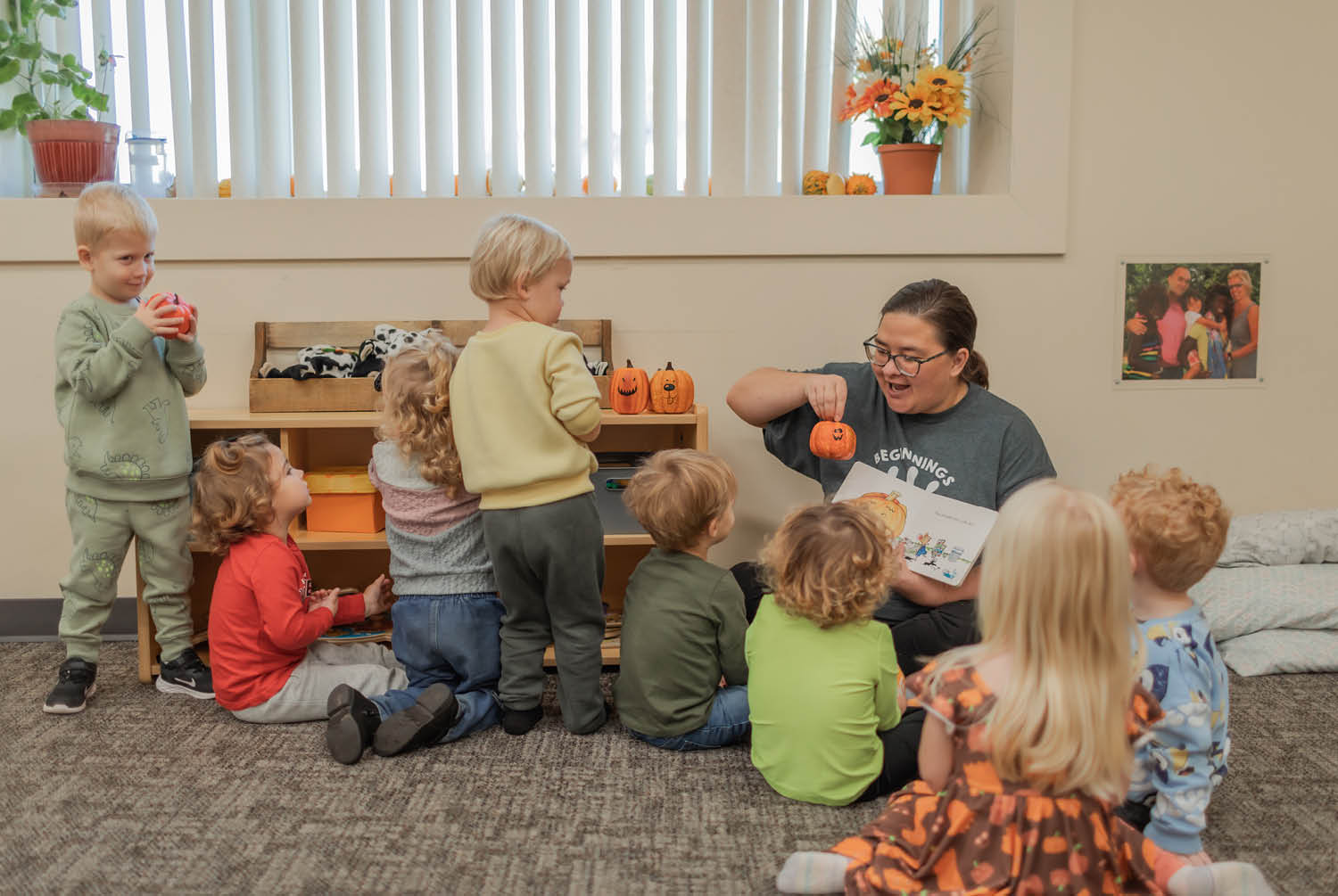
How does it feel to have achieved the Step 5 level?
It’s very personally rewarding as a director but also rewarding for our staff. As a director, I can’t take all the credit. I can put the paperwork together, I can schedule things, but it’s my team that does all the work.
Our entire team works together for the quality care of our kids, and I am so proud and grateful for them. I am very blessed to have a team that was willing to take part in this and to allow people to come in and observe us. Multiple evaluations can be a big ask, but they knew it was for the quality care of the kids, and they were all on board.
While we have reached Step 5, a misconception is that Step Up to Quality is something that you want to “achieve.” It is an achievement, but you’re not done there. It’s ongoing!
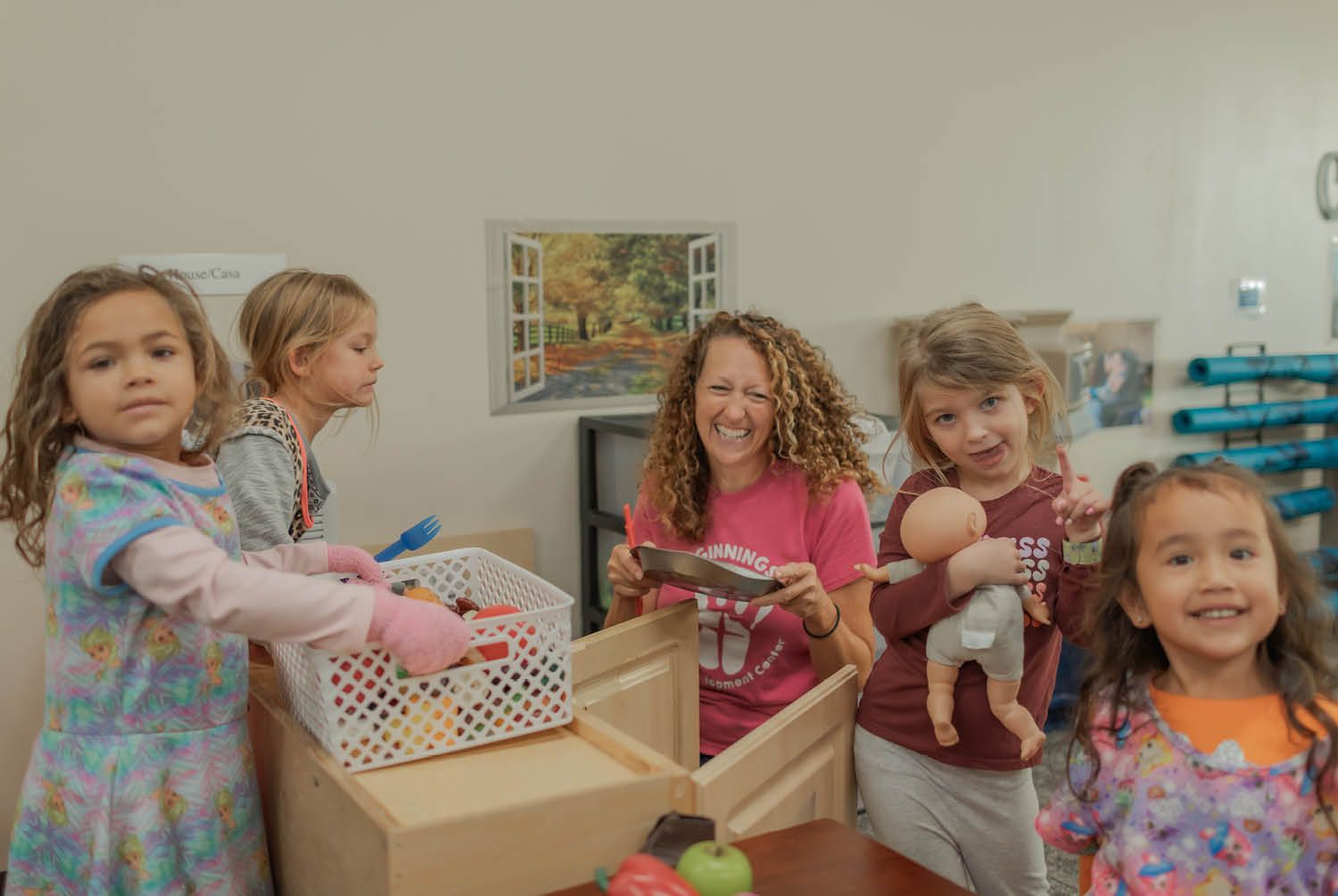
In what ways has Step Up to Quality helped boost the quality of your child care practices? What have you learned and implemented?
Step Up to Quality isn’t just about the hands-on care of kids, it takes a lot of things into consideration. We’ve especially learned and implemented practices in the administration area. We had a wage scale, but it didn’t take into consideration the education, experience and trainings of the people we hire, so we implemented a new scale. In the classrooms, we began having the teachers do self-assessments, which we had never done before joining Step Up to Quality. We also have our supervisors go in the classroom and do observations.
Step Up to Quality has also helped us learn what trainings our teachers need and how we can use those trainings to help educate our teachers, positively impact children and increase the quality of the entire center. We now encourage all of our staff to train to their next level. We want everyone moving up and expanding in their career.
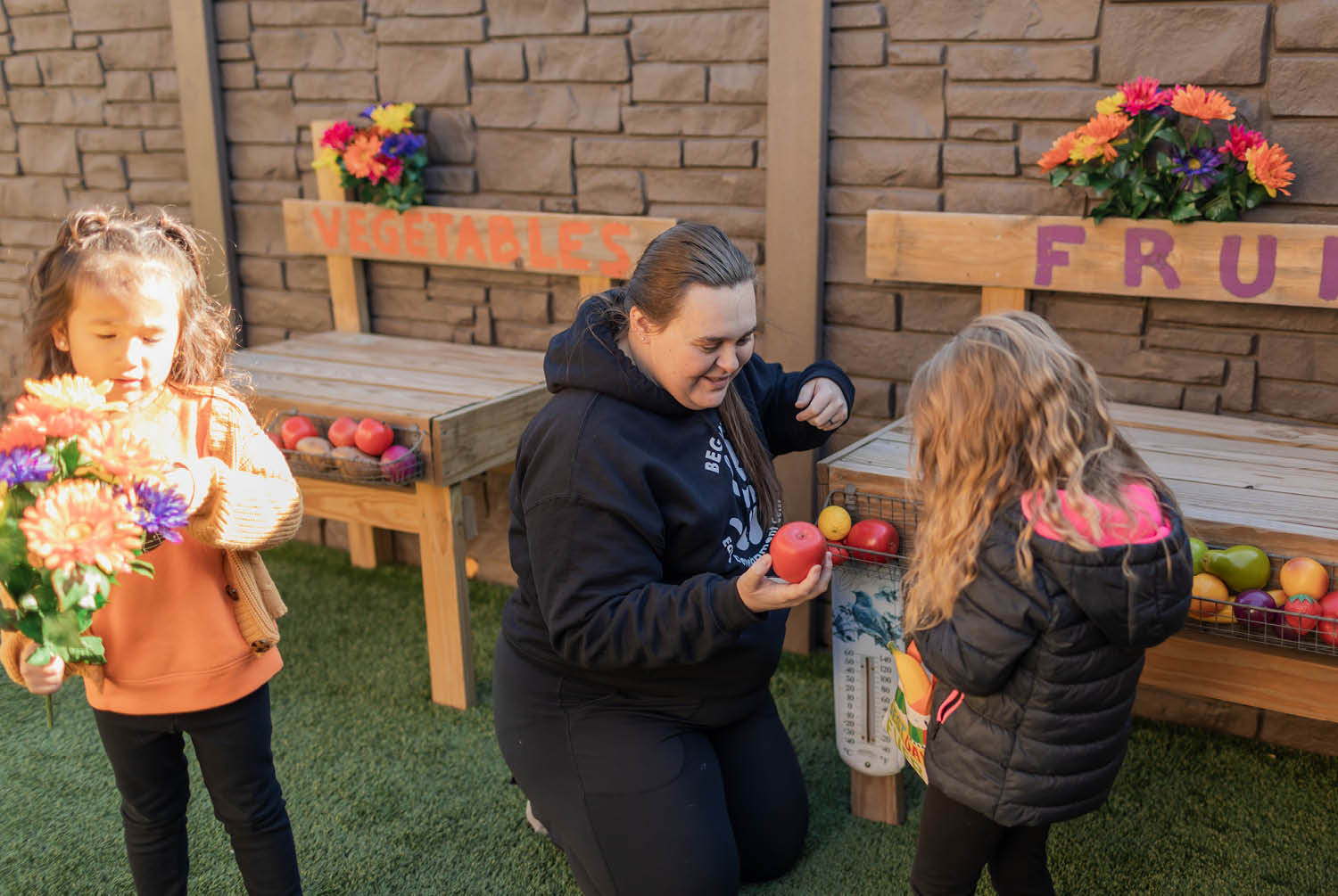
What words of encouragement do you have for providers who are considering joining Step Up to Quality or are still working through the steps?
Step Up to Quality is a process. If you’re struggling in a certain area, like administration or staff turnover, that’s okay! You’re going to start from Step 1, and you’re going to work up from there. You don’t have to have all of your ducks in a row from day one. My advice is to jump right in, and as you’re going through those steps, you’ll see quality improve.
Step Up to Quality makes it really easy for providers. They tell you exactly what they’re looking for and what quality means to them. They meet you where you’re at, strengthen your foundation and walk with you step by step to the next rating.
Step 5 spotlight: How Carime Ruvalcaba positively impacts Nebraska’s children and the profession
Meet Carime Ruvalcaba, director and owner of Karime Child Care, LLC, a family child care home in Grand Island, Nebraska. Achieving a Step 5 rating is one of Carime’s many accomplishments. Her continual learning and involvement in the early childhood education field has elevated the quality of her care and helped others along the way.
What inspired you to become a child care provider?
I worked in the meat processing industry for many years, and after getting through some difficult life circumstances, I found the reason why God sent me into this world: to educate, protect and take care of children.
I wanted to own a business, and I have now been director of my own program for six years. I am the first Hispanic person in early childhood daycare services who has achieved this level in Grand Island. I take care of up to 10 children, and my waitlist has continued to grow. My childcare and educational philosophy is driven by the well-being and development of children.
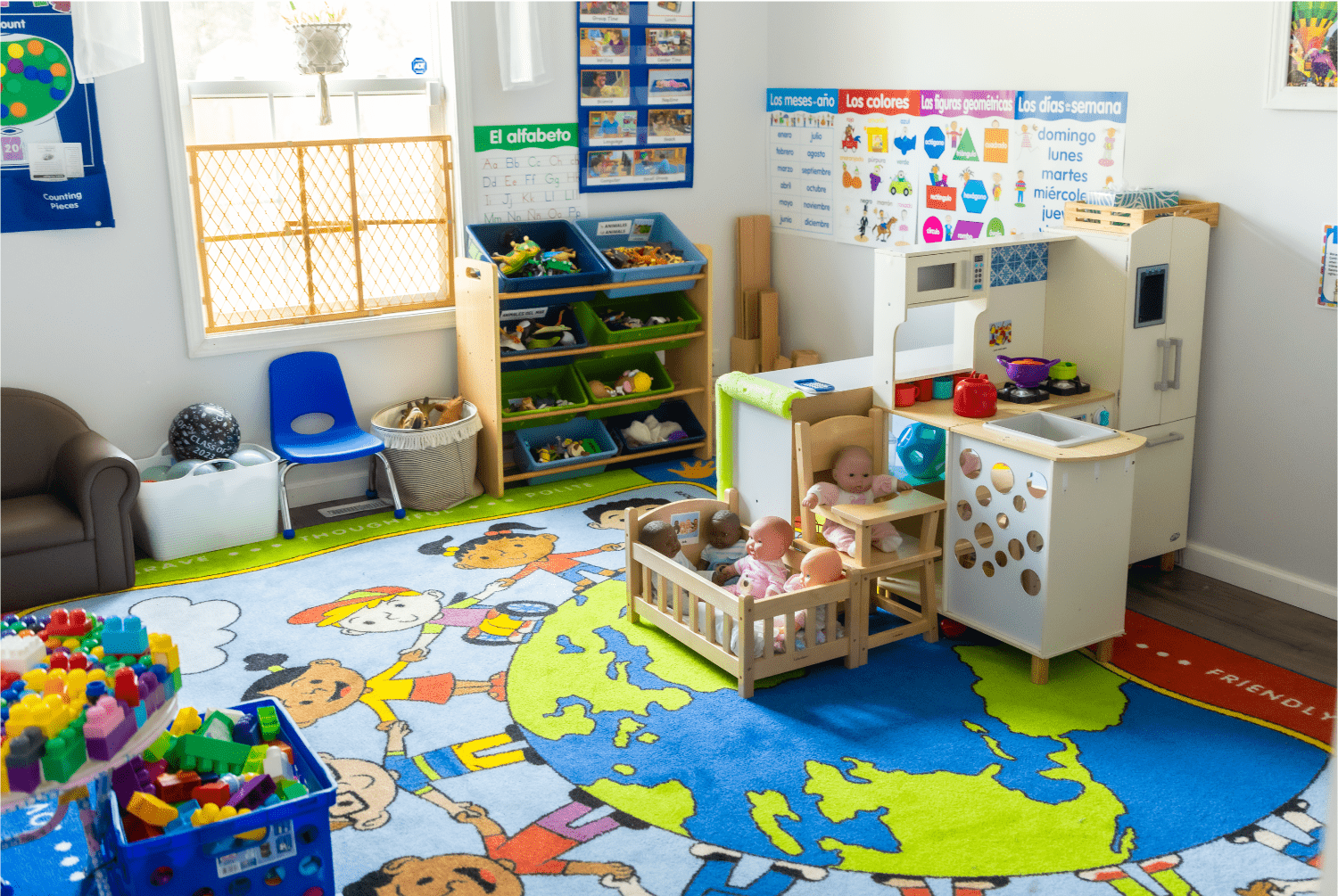
Although I don’t know English, with the help of my phone and Google Translate, I’ve completed more than 280 hours of training in the past six years.
With the support of Nebraska Early Childhood Collaborative (NECC) and a large group of providers in the Omaha area, I obtained my National Child Development Associate (CDA) credential. NECC has also recognized me as an Elevated Provider of the Month in December 2021 and as Early Childhood Champion in March 2023 for my dedication to developing the future of Nebraska and helping our communities prosper. I continue to be a part of NECC’s Elevate program.
I also have the honor of being a member of the Nebraska Early Childhood Workforce Leadership Cadre by the Buffett Early Childhood Institute, which brings together 26 leaders in the field of education. We provide information and ideas that help implement projects that increase the quality and quantity of professionals dedicated to early childhood education.
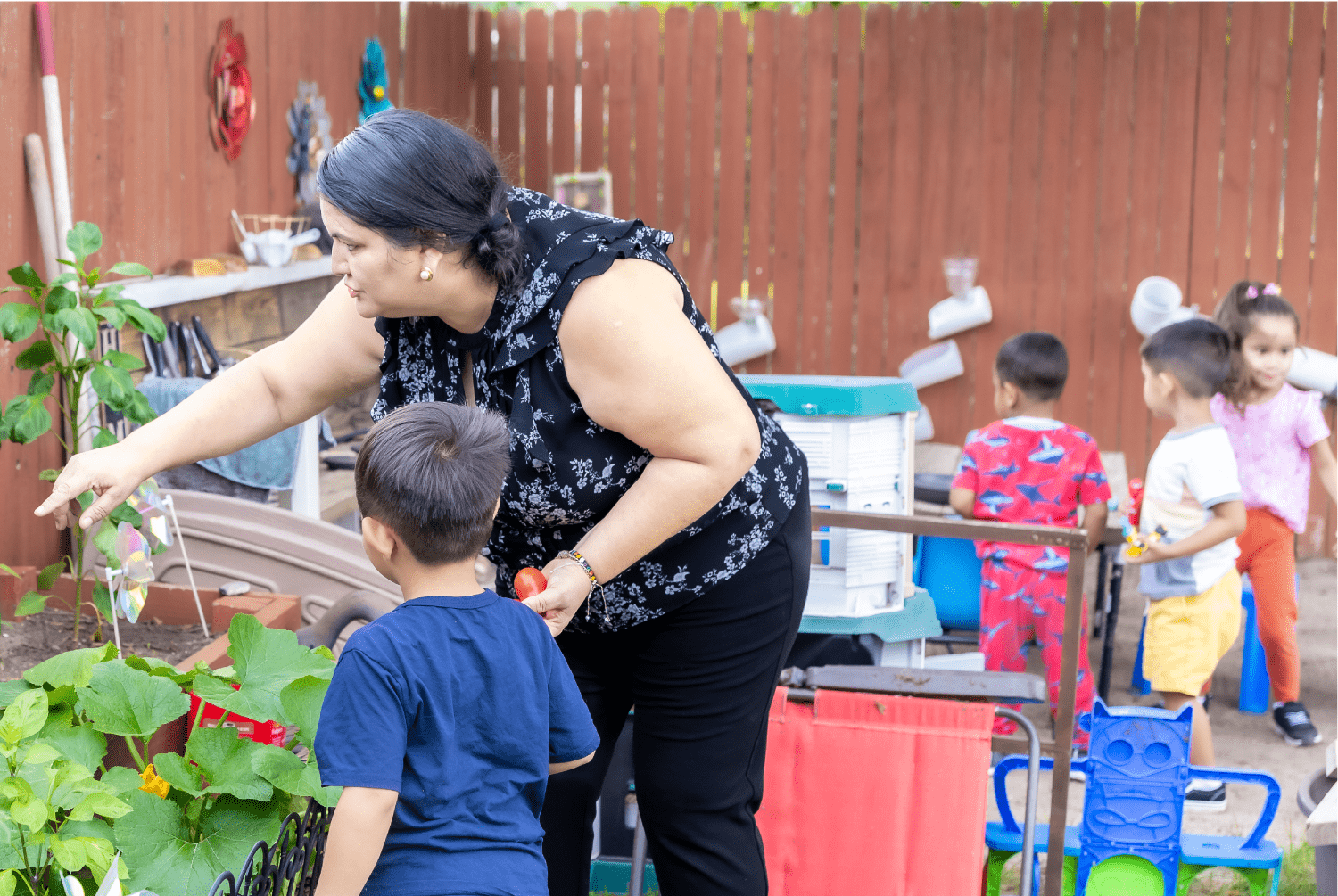
I am certified as a Safe With You trainer in Spanish, and I volunteer with a group of organizations in monthly meetings, which are held in College Park in Grand Island every last Wednesday of the month. We offer free assistance to people interested in taking care of and educating children. We explain the process of how to obtain a license, offer trainings and share information that helps them improve their programs. I am happy to share my knowledge and experience.
How did you learn about Step Up to Quality? Why did you decide to join?
I learned about Step Up to Quality through the Nebraska Early Childhood Professional Record System (NECPRS) and decided to join to raise the quality of my program. The first five years of a child’s life determine the kind of adult they will become. The way that you interact with a child influences their brain development, memory, emotions, learning, reasoning, problem-solving and decision-making. I want to be one of the people who positively influences the lives and futures of children and their families.
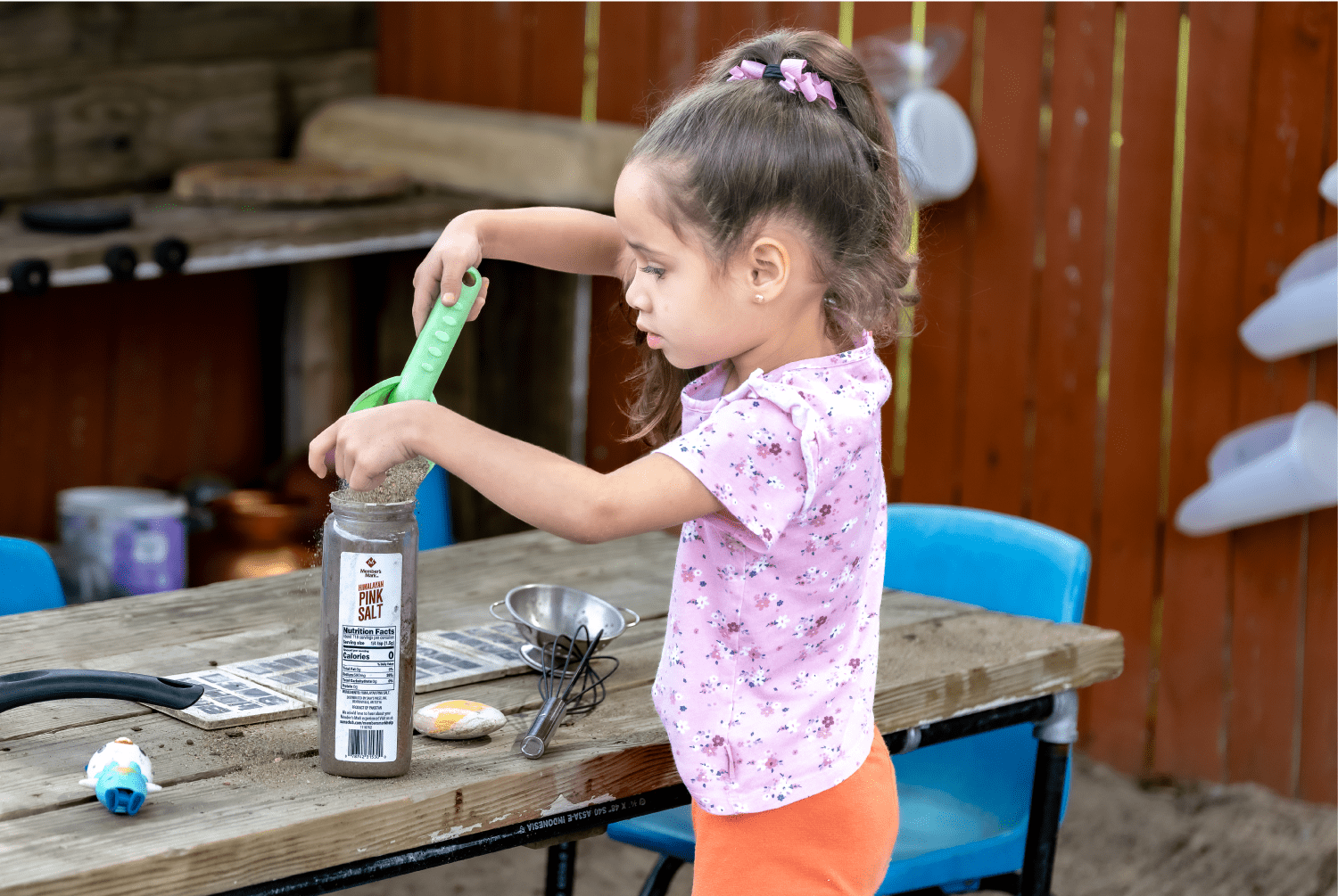
How does it feel to be rated at the Step 5?
I feel very proud and satisfied. It is a great achievement for my program, and it allows me to further my career as a professional in early childhood education and child care.
In what ways has Step Up to Quality helped boost the quality of your child care practices?
Thanks to the training I completed through Step Up to Quality, I can offer more and better interactions with children, and I can also identify and respond adequately to the emotional and physical needs of each child in conjunction with families. The observations were very important to identify the things I’m doing well and to give me the opportunity to make improvements. I believe better results are obtained if you build instead of repair.
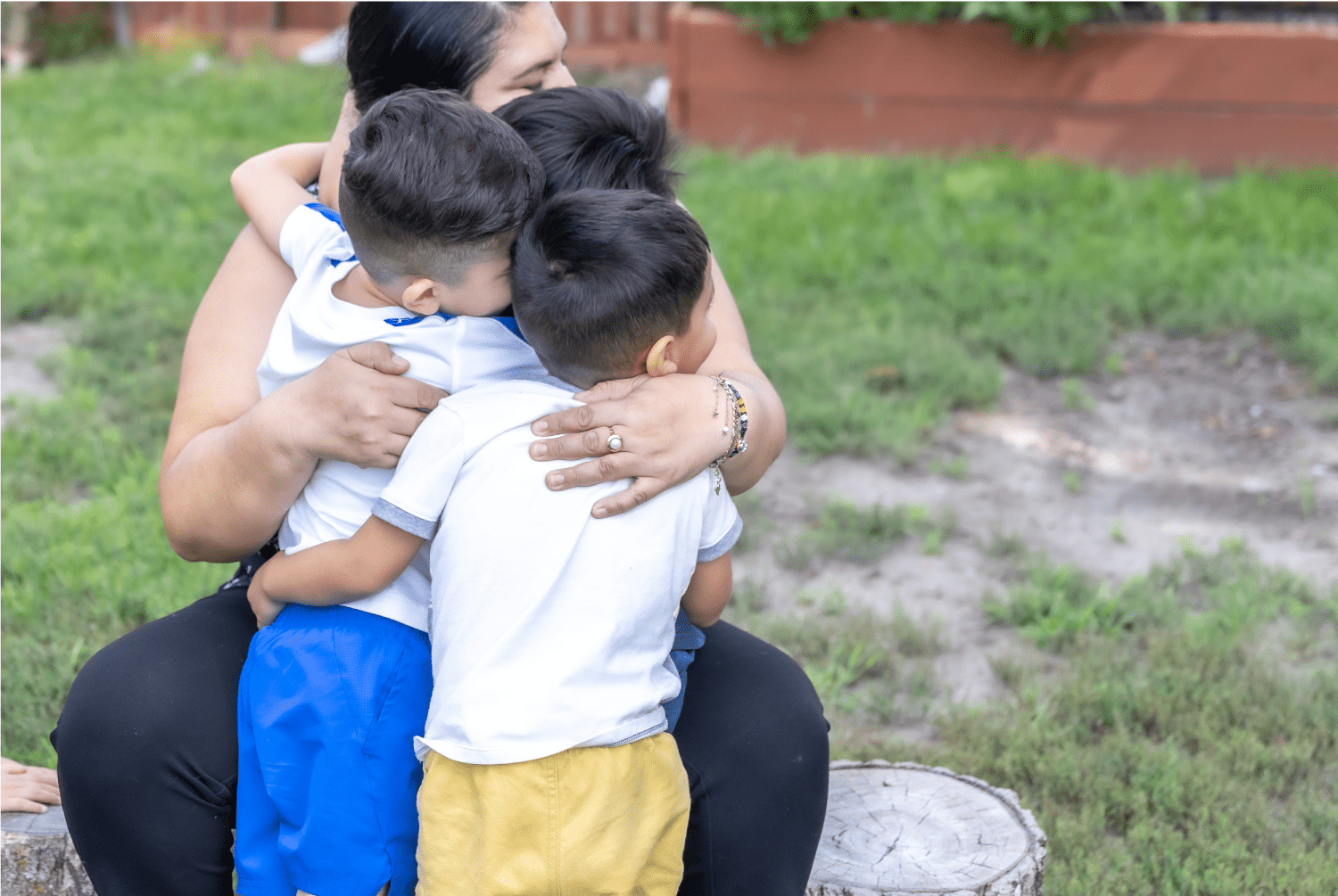
What words of encouragement do you have for providers who are considering joining Step Up to Quality or are still working through the steps?
Joining Step Up to Quality allows you to learn and improve your program, which then gives you the opportunity to improve the future of Nebraska’s children and families. And as part of the Nebraska Department of Education, Step Up to Quality training truly makes you a professional.
Paso 5 foco de atención: Cómo Carime Ruvalcaba influye positivamente en los niños de Nebraska y en la profesión
Conozca a Carime Ruvalcaba, directora y propietaria de Karime Child Care, LCC, un hogar de cuidado infantil familiar en Grand Island, Nebraska. Lograr una calificación de Step 5 es uno de los muchos logros de Carime. Su continuo aprendizaje y participación en el campo de la educación de la primera infancia ha elevado la calidad de su cuidado y ha ayudado a otros en el camino.
¿Qué le inspiró para dedicarse al cuidado de los niños?
Trabajé en la industria procesadora de carne durante muchos años y, tras superar algunas circunstancias difíciles de la vida, encontré la razón por la que Dios me envió a este mundo: educar, proteger y cuidar a los niños.
Quería tener mi propio negocio y llevo seis años dirigiendo mi programa. Fui la primera proveedora Hispana de Cuidado Infantil Familiar en alcanzar alta calidad en Grand Island. Cuido hasta 10 niños, y mi lista de espera sigue creciendo. Mi filosofía de Cuidado y Educación de niños está impulsada por el bienestar y el desarrollo de los niños.

Aunque no sé inglés, con la ayuda de mi teléfono y Google Translate, he realizado más de 280 horas de formación en los últimos seis años.
Con el apoyo de Nebraska Early Childhood Collaborative (NECC por sus siglas en inglés) y un gran grupo de proveedores en el área de Omaha, obtuve mi credencial de Asociada Nacional en Desarrollo Infantil (CDA por sus siglas en inglés). NECC también me ha reconocido como Proveedora del Mes en diciembre de 2021 y como Campeona de Early Childhood en marzo de 2023 por mi dedicación a desarrollar el futuro de Nebraska y ayudar a nuestras comunidades a prosperar. Continúo siendo parte del programa Elevate de NECC.
También tengo el honor de ser miembro del Nebraska Early Childhood Workforce Leadership Cadre del Buffett Early Childhood Institute, que reúne a 26 líderes en el campo de la educación. Proporcionamos información e ideas que ayudan a poner en marcha proyectos que aumentan la calidad y la cantidad de profesionales dedicados a la educación infantil.

Estoy certificada como instructora de Safe With You en español, y colaboro como voluntaria con un grupo de organizaciones en reuniones mensuales, que se celebran en College Park, en Grand Island, todos los últimos miércoles de cada mes. Ayudamos gratuitamente a las personas interesadas en cuidar y educar niños. Les explicamos el proceso de obtención de la licencia, entrenamientos, y también damos información que les ayude a mejorar sus programas. Me complace compartir mis conocimientos y experiencia.
¿Cómo se enteró de la existencia de Step Up to Quality? ¿Por qué decidió unirse?
Me enteré de Step Up to Quality a través del Nebraska Early Childhood Professional Record System (NECPRS por sus siglas en inglés) y decidí unirme para mejorar la calidad de mi programa. Los primeros cinco años de la vida de un niño determina el adulto que llegará a ser. La forma en que se trata a un niño influye en su desarrollo cerebral, su memoria, sus emociones, su aprendizaje, su razonamiento, la resolución de problemas y la toma de decisiones. Quiero ser una de las personas que influya positivamente en la vida y el futuro de los niños y sus familias.

¿Qué se siente al estar calificado en Step 5?
Me siento muy orgullosa y satisfecha de haber sido calificada en el nivel paso 5. Es un gran logro para mi programa y me permite avanzar en mi carrera como profesional de Cuidado y educación de la primera infancia.
¿De qué manera ha contribuido Step Up to Quality a mejorar la calidad de sus prácticas de cuidado de niños?
Gracias a la formación que completé a través de Step Up to Quality, puedo ofrecer más y mejores interacciones con los niños, y también puedo identificar y responder adecuadamente a las necesidades emocionales y físicas de cada niño junto con las familias. Las observaciones fueron muy importantes para identificar las cosas que hago bien y darme la oportunidad de mejorar. Creo que se obtienen mejores resultados si se construye en lugar de reparar.

¿Qué palabras de motivación tiene para los proveedores que están considerando unirse a Step Up to Quality o que todavía están trabajando a través de Steps?
Unirse a Step Up to Quality le permite aprender y mejorar su programa, lo que luego le da la oportunidad de mejorar el futuro de los niños y las familias de Nebraska. Y como parte del Departamento de Educación de Nebraska, la capacitación de Step Up to Quality realmente lo convierte en un profesional.
It’s Quality Time: Season 2 of our podcast is now live
We’re excited to share that we’ve launched season 2 of our Quality Time podcast!
The first episode is available for streaming now on Spotify, Apple, Google, Stitcher or right here on the Step Up to Quality website. Dive into school readiness and preparing for kindergarten with Emly Daberkow and Carol Burk, two early childhood education specialists at the Nebraska Department of Education’s Office of Early Childhood.
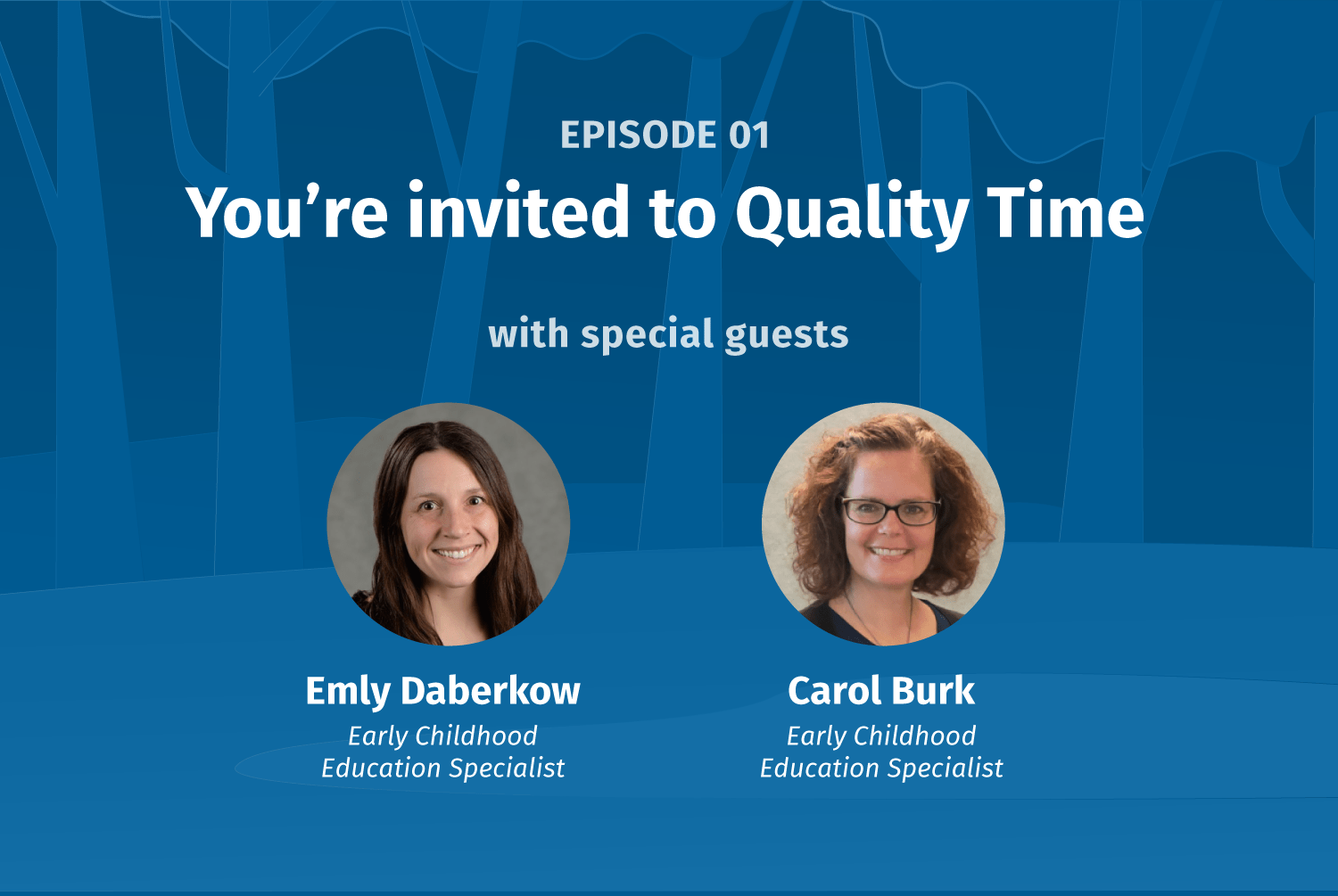
This upcoming season promises more of what our listeners loved from season 1 (like two more meditation episodes!) and then some. Our wonderful host Colleen Schmit, an educator, speaker, author and observer with Step Up to Quality, has interviewed local providers and national experts about nature-based learning, the power of play, compassion fatigue and more.
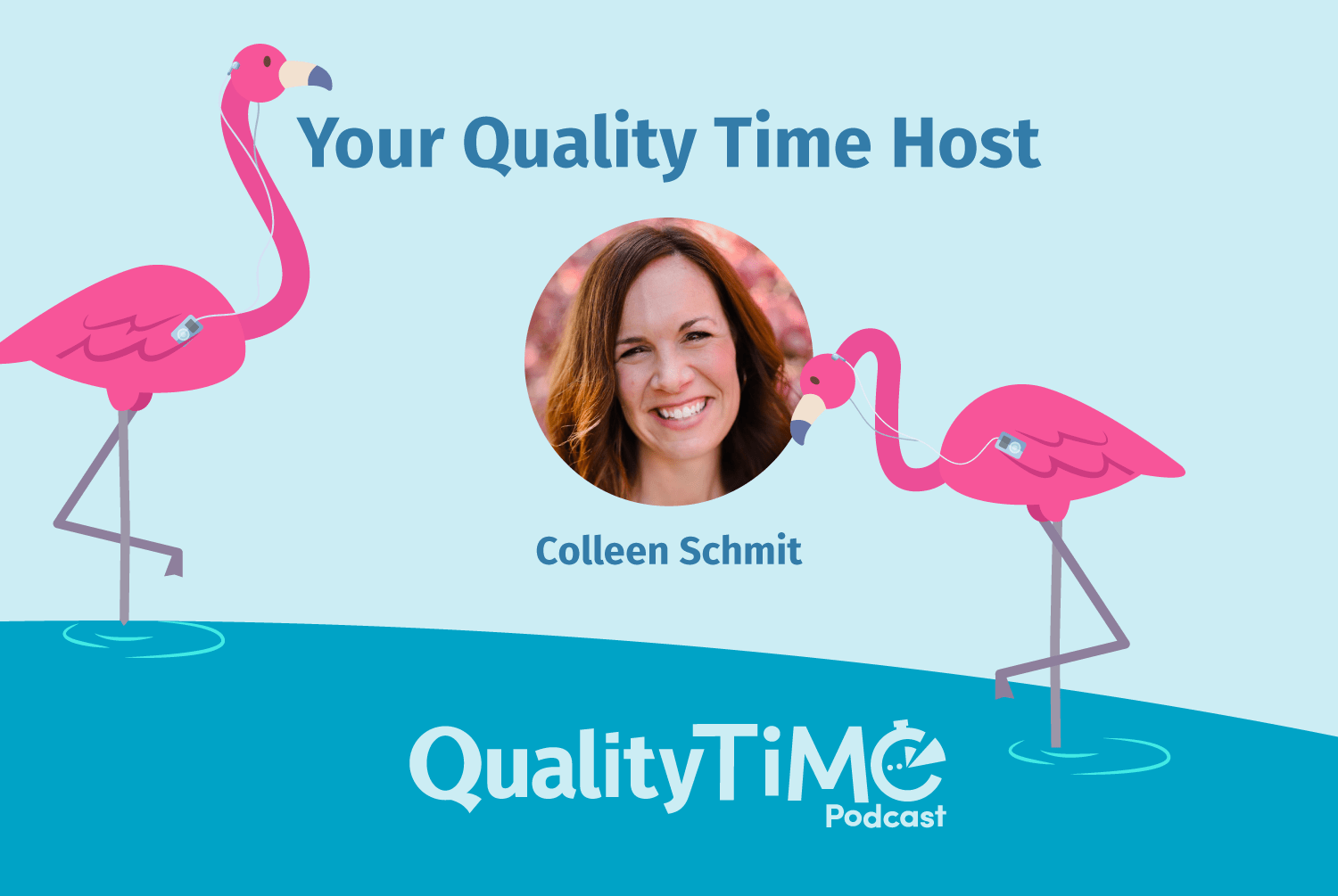
Regardless of the topic, our goal is to uplift anyone working in early childhood education. We hope this new season will continue to leave child care professionals feeling inspired, appreciated and supported in the powerful work they do every day. That’s what Quality Time is all about!
New episodes will be released every other week on Wednesdays — a great opportunity for a midweek recharge. Be sure to subscribe to the Step Up to Quality e-newsletter for new episode alerts.
On Cloud Nine: Learn about Step Up to Quality’s Exciting Milestones
In July, we celebrated the ninth anniversary of Step Up to Quality!
We’re so proud to be a part of the growing focus on the importance of high quality early childhood education, both here in Nebraska and throughout the nation. Step Up to Quality is a part of a network of Quality Rating and Improvement Systems (QRIS) throughout the country. While each state’s system is a little different to fit the needs of individual areas, we all are working toward making each child’s early learning experience the best it can be.
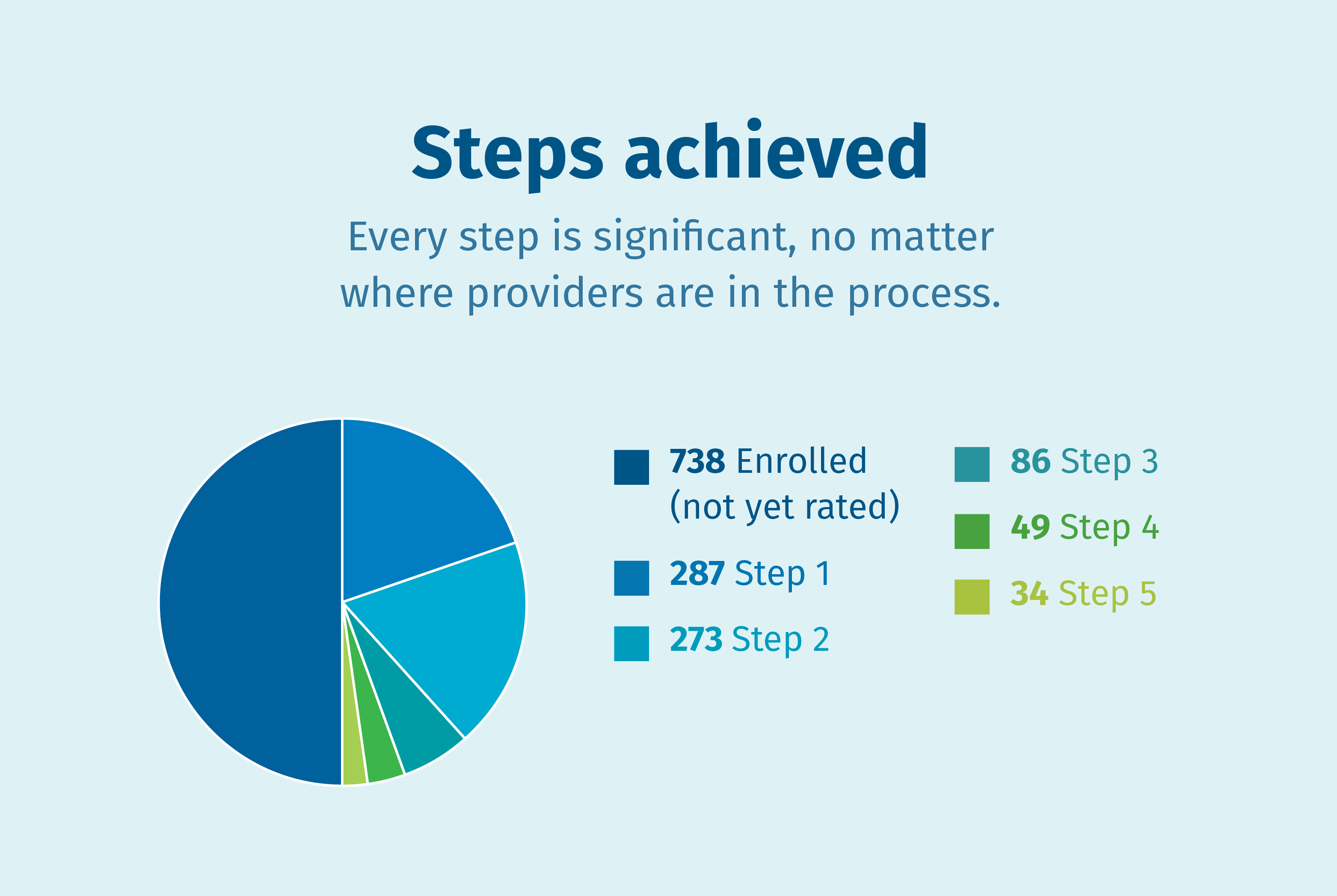
This past year was a milestone for us in many ways. One of our biggest accomplishments was launching the much-anticipated Step Up to Quality 2.0. After many meetings, surveys, feedback sessions and research, we learned a great deal about what worked about our process and what could be enhanced. The improvements we made included earlier coaching opportunities, observation choices and expanded indicator options for a more personalized experience.
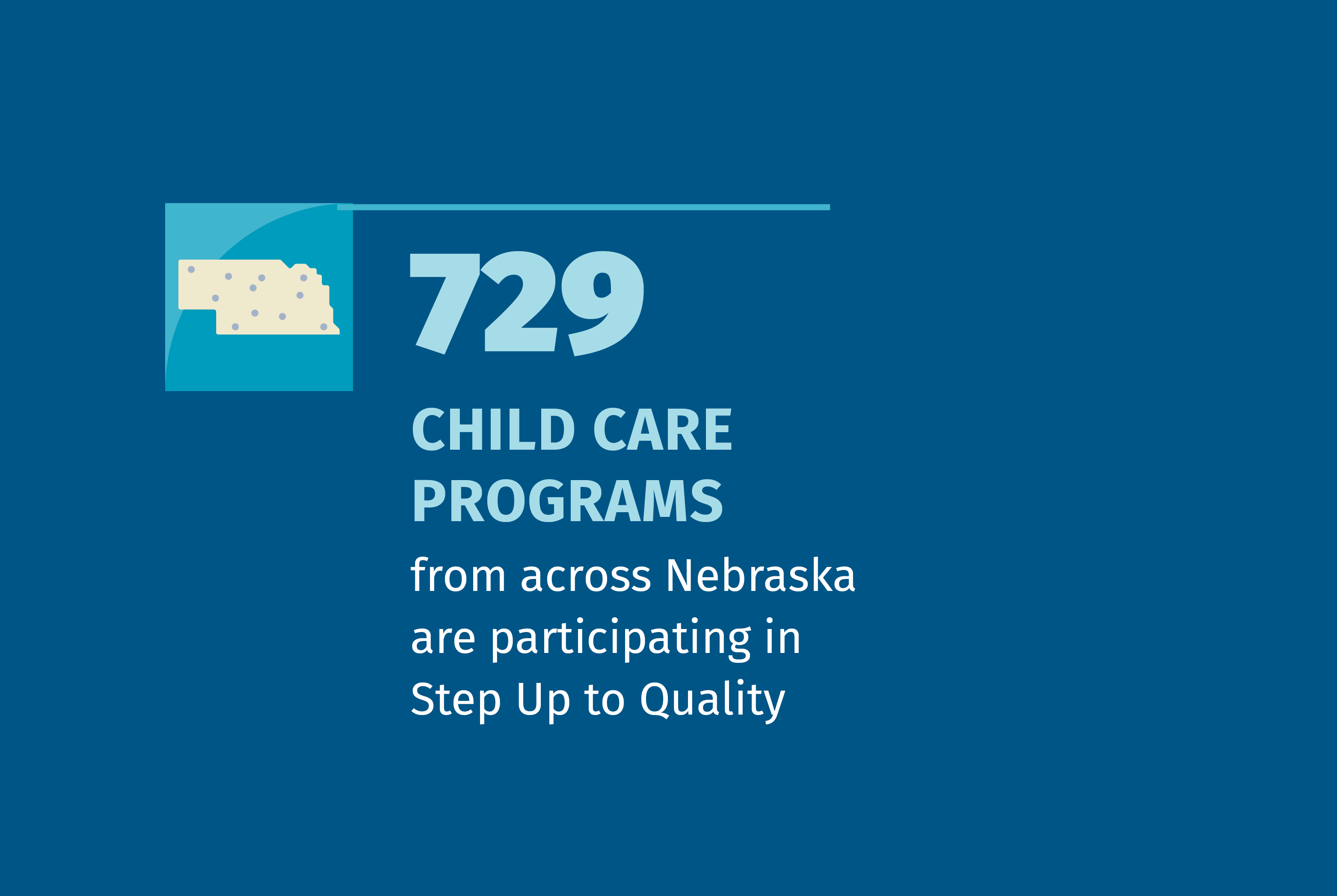 Another exciting moment was when we surpassed 700 participating programs. And now we’re up to 729! We’re incredibly proud of each and every provider who is working through the five steps. It’s a rigorous process, but it’s also rewarding and meaningful. We are grateful for these providers who are going above and beyond for the children in their care.
Another exciting moment was when we surpassed 700 participating programs. And now we’re up to 729! We’re incredibly proud of each and every provider who is working through the five steps. It’s a rigorous process, but it’s also rewarding and meaningful. We are grateful for these providers who are going above and beyond for the children in their care.
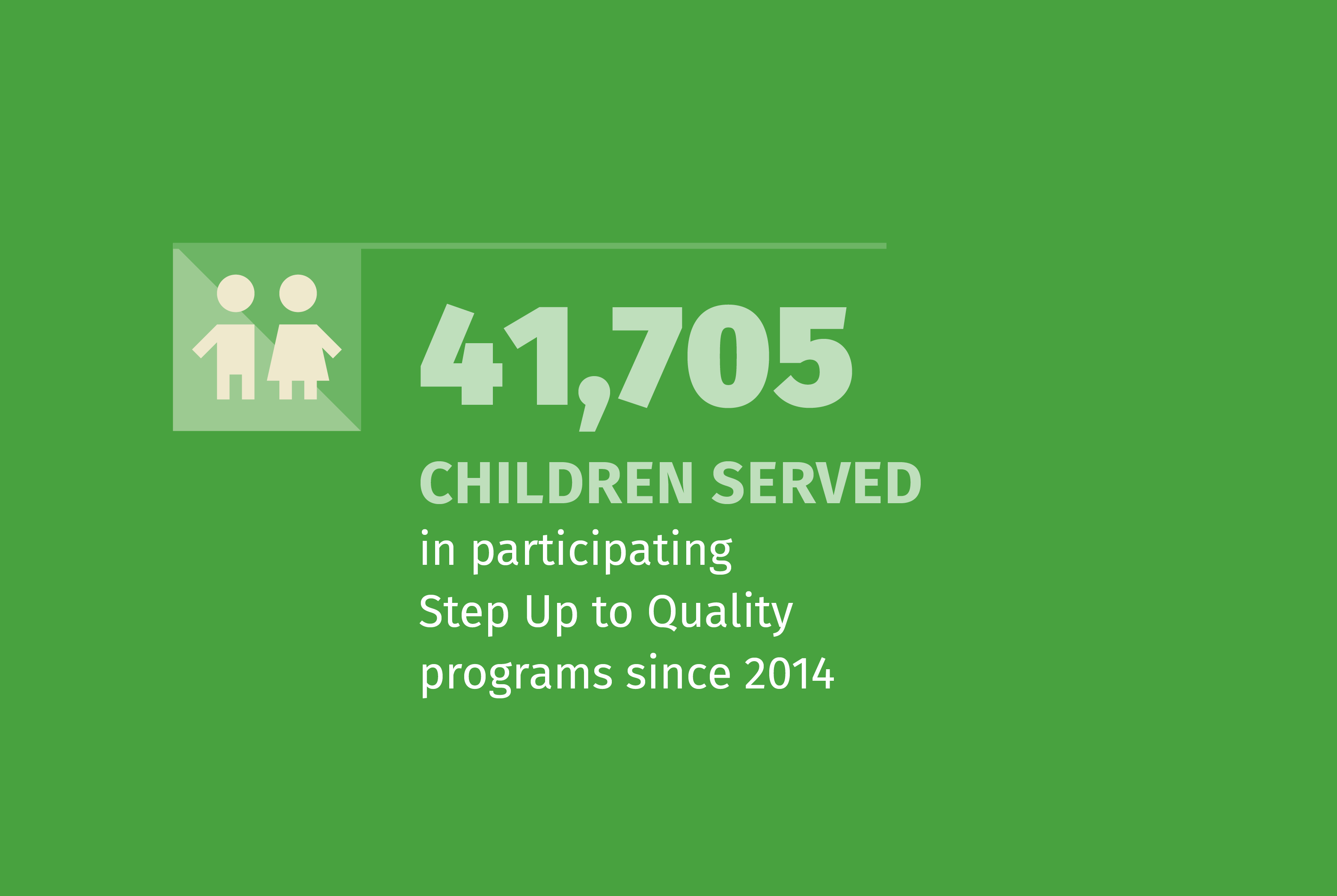 Which leads us to our most important number: 41,705 children have been educated by Step Up to Quality-rated programs since 2014. Every child in Nebraska matters to us, and we’re appreciative of all the parents and educators who share our commitment to high-quality early childhood education.
Which leads us to our most important number: 41,705 children have been educated by Step Up to Quality-rated programs since 2014. Every child in Nebraska matters to us, and we’re appreciative of all the parents and educators who share our commitment to high-quality early childhood education.
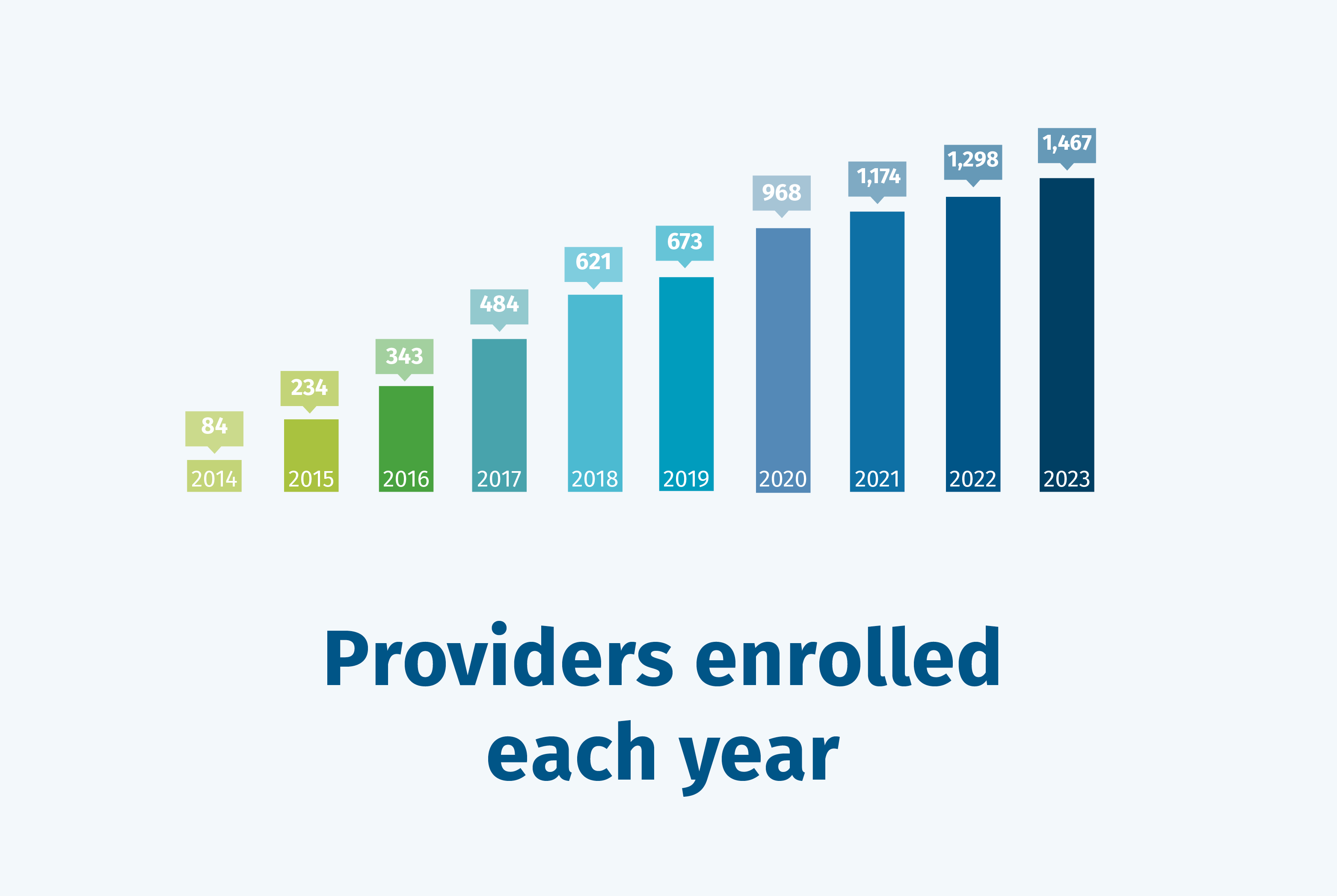 For more information on our growth over the last nine years, please view our annual report. Be sure to sign up for our monthly newsletter for the latest information about Step Up to Quality.
For more information on our growth over the last nine years, please view our annual report. Be sure to sign up for our monthly newsletter for the latest information about Step Up to Quality.
Step 5 spotlight: Natalie Hanna explains how Step Up to Quality benefits her family child care home
Meet Natalie Hanna, director and owner of Natalie’s Child Care, a family child care home in Kearney, Nebraska. This Step 5 provider has been with Step Up to Quality since the beginning, so we gave her a call to learn more about her inspiration to join the profession and her Step Up to Quality journey.
What inspired you to become a child care provider?
I was raised as an only child by my struggling, divorced single mother. For the first seven years of my life, my mother tried to make ends meet while working the overnight shift at a local factory. When she was sleeping during the day or at work overnight, I was left at Karen’s house, a family friend with four young boys just down the road who graciously opened her home to me. I called Karen my “mom” and my maternal mother “grandma.” She played a vital role in shaping who I became.
Karen was the role model I didn’t know I needed — she included me in family pictures, holidays and vacations. I never felt alone. Karen was the best listener; she would either drop what she was doing or would magically multitask to converse with me at the same time.
These qualities would help push me to better myself. While raising five children under her roof, she was also attending college courses. This was something I admired, as no one in my family had ever attended a vocational university or post-secondary school. I knew if Karen could accomplish so much as a mother and mentor, I could as well.
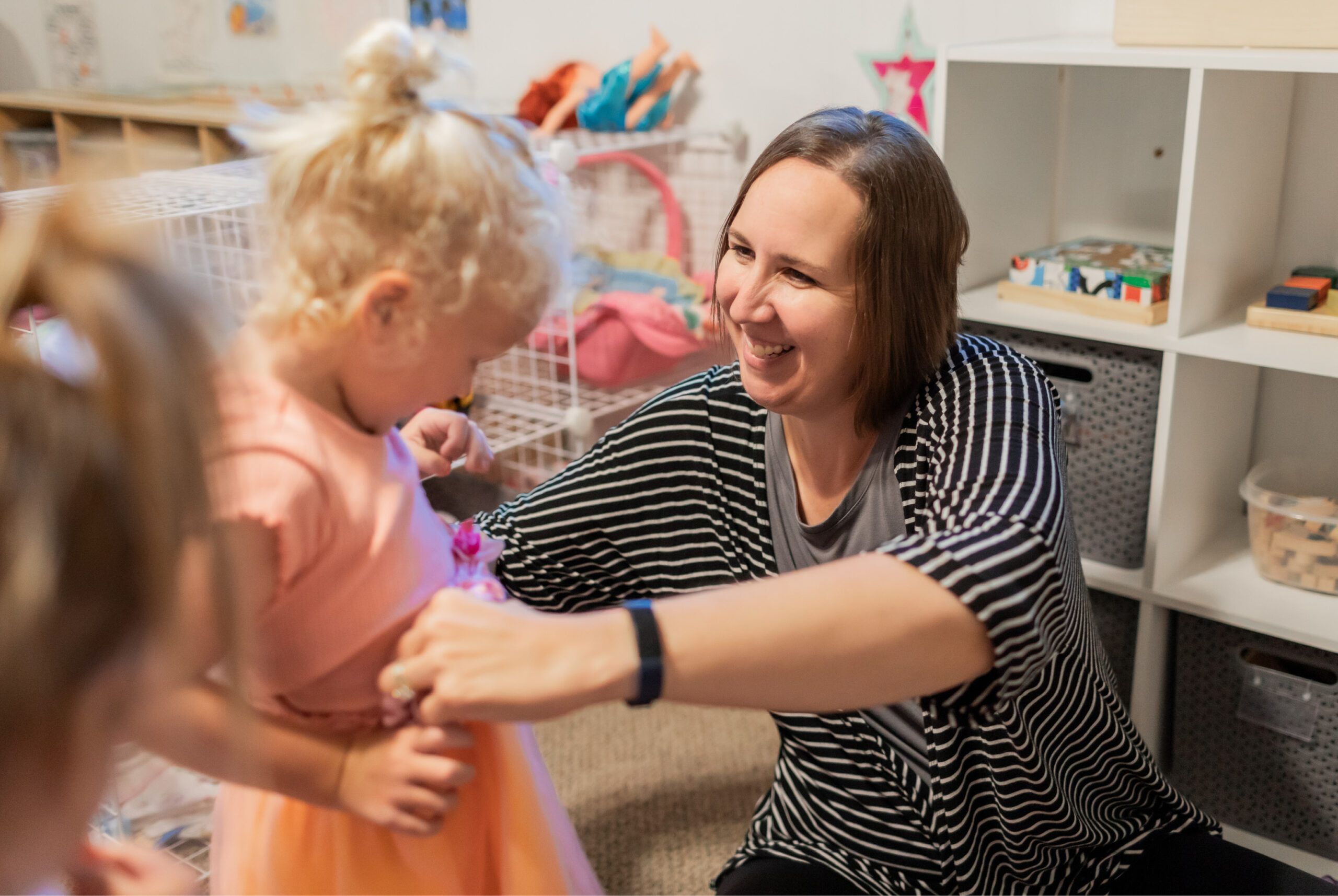
What is your child care philosophy?
My philosophy as an early childhood educator is to provide a loving, nurturing and supportive family setting for each child while their parents are away at work. I believe that each child is a unique individual who necessitates a secure, caring and stimulating atmosphere in which to grow and mature emotionally, mentally, intellectually, physically and socially.
Children learn through their play with age-appropriate activities, toys and materials. Each child is an individual and needs to be treated as such. They come in all shapes and sizes and at all stages of development. I help guide them through each developmental stage and build upon them. I specifically monitor each child’s progress with their large and small motor development, coordination, interaction with peers and communicating in the physical domain as well as assisting with language and cognitive development.
How did you learn about Step Up to Quality? Why did you decide to join?
I learned about Step Up to Quality when it was first introduced. I was initially skeptical, because it seemed like it was geared more toward centers than in-home child care. After doing more research, I learned it was an initiative for any type of provider to elevate their child care career. And I realized that, if I was already doing these high-quality practices, why not get recognized for it, and why not take my child care offerings to the next level?
It was also very impactful once I started seeing in-home providers being rated as Step 5. I was offering the same kind of program, so why not jump on board? There’s nothing to lose, and the Step 2 trainings were required by licensing anyway. And now, through ARPA funding, trainings are temporarily free. The incentive is phenomenal.
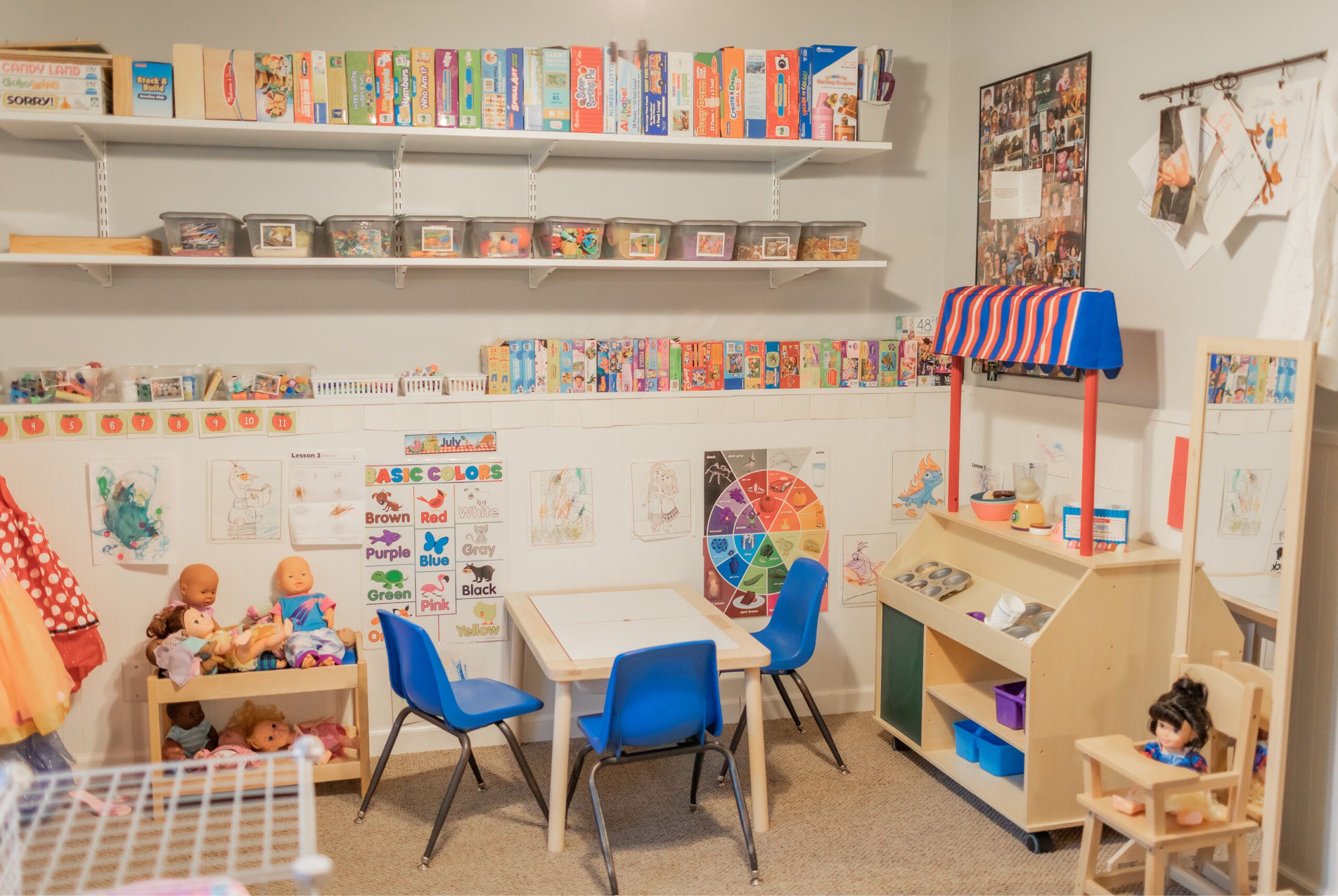
You’ve gone through the rating process two times. How does it feel to have achieved and maintained the Step 5 level?
The feeling of accomplishment, acceptance and recognition really helps affirm and promote the early childhood profession.
For me, going through the rating process the first time took six months, which can take the average provider up to two years. I know that isn’t the traditional process for most people, but it’s totally doable if you want to move quickly. I love that you can move at your own pace with Step Up to Quality.
Going through the rating process the second time, I knew what to expect, and it’s way faster. I kept my high-quality practices in motion, so when it came time to re-rate, it was basically filling out paperwork and updating a few things. There wasn’t a whole lot to change.
In what ways has Step Up to Quality helped boost the quality of your child care practices?
Step Up to Quality helps define and set benchmarks for high-quality environments and experiences for family child care providers. It outlines and breaks down the steps into manageable bits, and it’s up to you as the business owner to decide your path.
Having a coach that was relatable and totally knowledgeable in family child care was especially beneficial to me. She would give me ideas, but I was the one in charge. At the end of the day, it was my business, and I was completely in control. Coaches are not judging you, they’re there to completely support you.
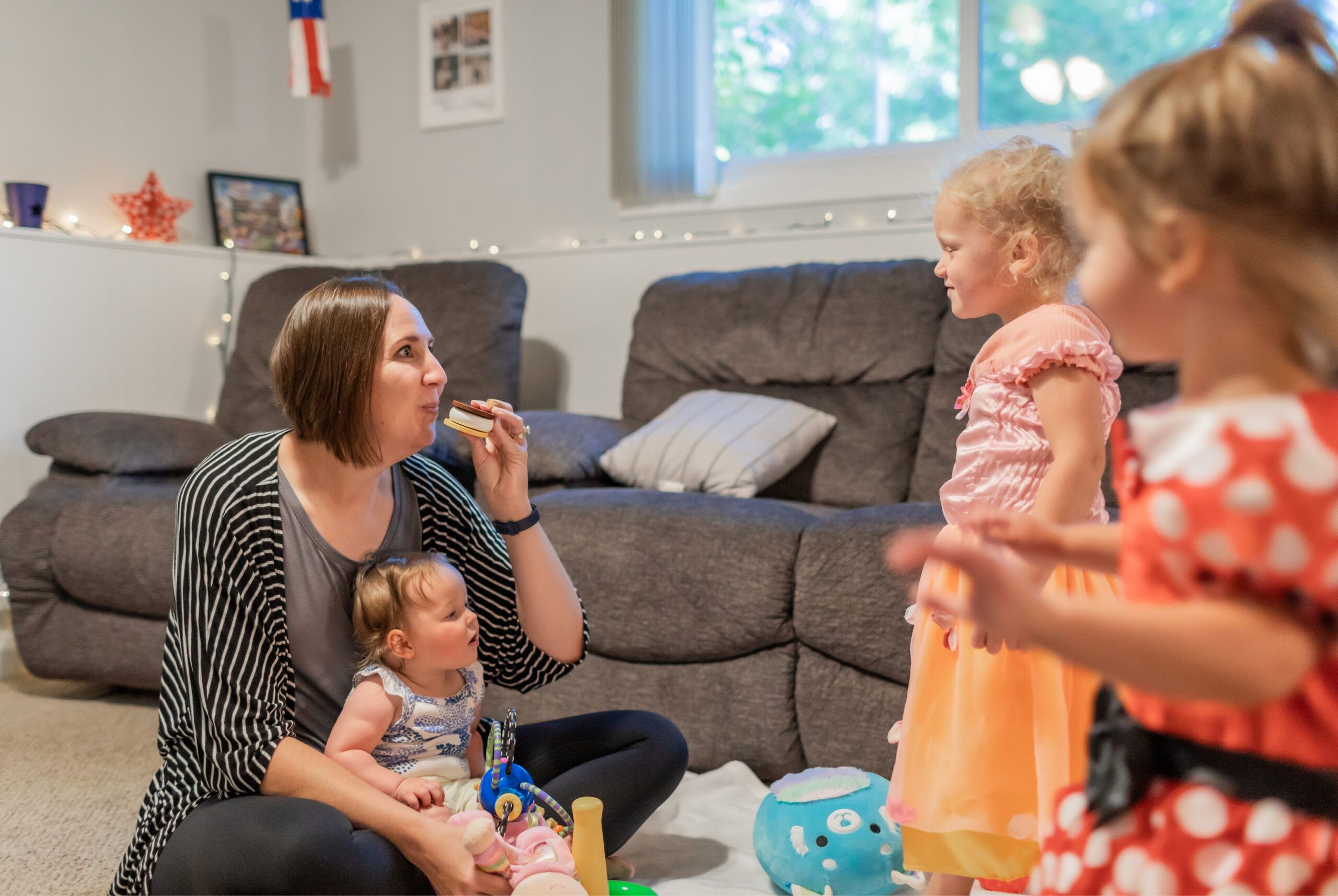
What words of encouragement do you have for providers who are considering joining Step Up to Quality or are still working through the steps?
You have nothing to lose but everything to gain! There are benefits throughout the rating process, and you’re getting recognition for providing higher-quality care. It sets you apart.
And there’s such a great feeling of satisfaction knowing that you’re doing the best that you can as an in-home provider and are serving the people of your community. There’s no reason not to enroll!
5 Tips for a Happy First Day of Child Care
The first day of child care can be challenging for everyone.
For parents, even if they’ve done all their research and know that the chosen program is a good fit, it can feel like the most unnatural feeling to leave their child.
For teachers, a new little one brings new routines and behaviors, and the transition from home to classroom isn’t always a simple process.
And for the child, a brand new place with new kids to play with can be overwhelming and stressful.

The good news is that planning and preparation can go a long way in making a smooth and happy first day for everyone involved. Here are some tips for parents and providers to make the transition as easy as possible:
- Schedule a meeting and tour about a week before the first official day. This is when parents can drop off diapers, an extra set of clothes and anything else that will need to be stored at the facility that isn’t perishable (like breast milk). This is also when everyone can re-introduce themselves, the child can see the room(s) again and parents can familiarize themselves with teachers’ names. Paperwork can be finalized during this time, questions can get answered from both sides and the child will remember the visit when the first day comes around.
- Prepare and pack things the night before. Parents should decide on the outfit the child will wear, set out any bags that will be needed and run through the new morning routine to set expectations. Providers should make sure the new child’s spaces are clean and ready and remind the current children about the new friend that will be joining them the next day.
- Consider starting with half days. If an entire day is too much for either parents or the child, consider easing into child care by having the child attend until lunchtime. After lunch is often naptime anyway, so the child won’t miss much educational programming. And, if child care starts right after parental leave, it can make those first days back at work feel easier, too.
- Bring something special. It’s common for kids to bring a blanket from home as both a comfort and a practical naptime item, but what about the adults? It’s a nice gesture for parents to bring something small for the teachers to wish them a good first day, and it’s very much appreciated when child care providers give parents a little welcome kit. For example, teachers can sign their name to a card and pair it with something as simple as a plain gift bag with tissues, candy and a little craft that the current students made (like a tissue paper flower).
- Read a special book and take photos! We know that the first day of child care is a momentous day, so we created a book all about the experience that we’ve sent to every provider who is participating in Step Up to Quality. By reading “Stepping Into Quality,” kids will learn what to expect at child care and what quality early childhood education entails. It sets the tone for lots of fun and learning in the days and years to come. We encourage teachers to take photos of the special time and share the images with parents as a memento of the day.

All this thought and preparation serves another purpose: it helps prepare everyone mentally and emotionally for the day. While it will still be difficult for parents to leave their child, surrounding the day with happy moments and intentions will help make it a day to both look forward to and remember with joy.
If you are a child care provider who is not yet enrolled with Step Up to Quality, you can apply and complete Step 1 entirely online! If you’re a parent and your child care provider is not yet enrolled, send the director of your child’s program this link to help them get started.
Step 5 Spotlight: Bernard Turnbo discusses how an open mindset enhances his facility’s quality
We recently chatted with Bernard Turnbo, director and CEO of B.E.T. Learning Academy, to learn more about his history in child care, his team’s Step Up to Quality journey and how the academy achieved a Step 5 with flying colors.
What inspired you to become a child care provider?
Caring for children has always been a passion of mine, inspired by my father. He founded the facility in 1987. I started working here when I was 16.

You took over in 2015 after working as a teacher’s aide and office professional at the academy. Did you always plan to become the director?
No, I didn’t! In 2015, my dad wanted to retire and kept encouraging me to take over, so I agreed on the condition that I could go to school full time and have flexibility as the new CEO and owner of the facility. I then went to school full time, finished two years later and got a bachelor’s degree in general administration.
I became the director in October 2020 when my aunt retired — she helped start the facility. That was when I bridged my role as CEO with the executive director role. Because I had worked all my life in the facility and had hands-on classroom experience, I knew I could take over the role instead of hiring someone else.
Two weeks ago, I completed my Master of Science with a concentration in human resource development from the University of Texas at Tyler.
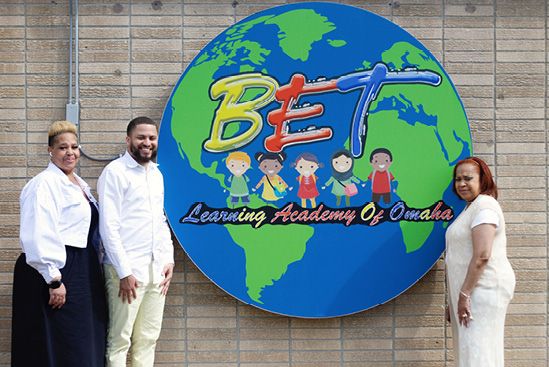
Have you been able to rely on your father for support and advice?
Me and my dad talk every day, and he’s a big part of the support system here at B.E.T. Any time we’re down a staff member, he’s willing to come out of retirement to help run the facility.
I live between Nebraska and Texas because I’m opening up another facility as we branch off into a franchise. So when I’m not here, he’ll come in and help run the facility on my behalf with our other administrators.
Why are you interested in opening more locations?
We’re starting with Dallas, Texas. We’re planning on branching out to other cities in Texas, and then a couple years after that, hopefully some other states. The goal is to be the B.E.T. Learning Academy franchise, and I think it can happen. I have a very good staff here, and this center runs itself when I’m not present.
We have everything done with the state of Texas: We have the equipment to start the building, and we have the funding. Now, we just need to find the right building.
What is the academy’s child care philosophy?
One of B.E.T.’s main goals is to create history. By that, we mean we want every child who walks out of here to be someone when they become of age. Typically, the children who have come through the center, even before I was born, have gone on to college and had successful careers.
What makes us unique is our hands-on approach to learning. We don’t believe in paper-based learning, we believe in learning through play. Children learn best when they’re active. When they’re not active, they become bored or begin exhibiting behavioral problems. We use positive, hands-on activities that support social-emotional, language and literacy skills, setting children up for success to create history.
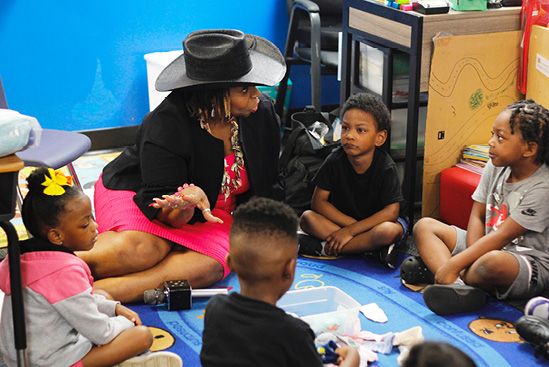
How did you learn about Step Up to Quality? Why did you decide to join?
We learned about Step Up to Quality in 2015 when I became the CEO. My aunt, who was director at the time, had taken intro courses for Step Up to Quality. I wanted to enroll in it because it was boosting the quality of my facility. Having coaches helped us learn how to enhance what we were already doing. I always tell my staff that we aren’t changing, we’re enhancing what we do to make it better. And it worked, because we’re now a Step 5!
In August 2022, I had a meeting with my staff and set the goal of reaching at least a Step 4 level by February 2023, which would be the 35th anniversary of B.E.T. We started kicking it into gear, getting into all the classes that we needed and working with excellent coaches Michelle Rupiper and Keon Davidson-Grace. They helped push this building to success.
We submitted for our rating in January, got rated in March, then got our Step 5 certificate in April 2023.
How does it feel to have achieved the Step 5 level?
It is one of the biggest accomplishments that’s happened during my tenure as CEO. To see where we started in 2015, and being the first center to become a Step 5 under Step Up to Quality 2.0, it really feels great. My staff is on fire and so excited. They tell everyone about our Step 5 status.
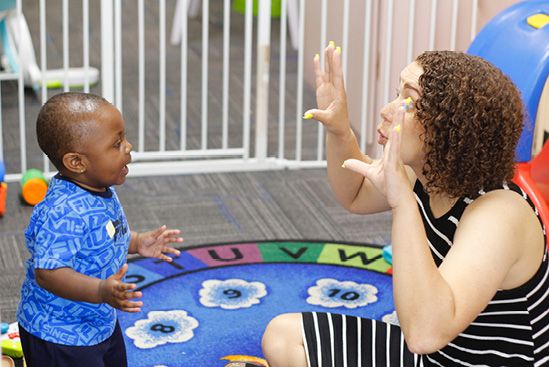
In what ways has Step Up to Quality helped boost the quality of your child care practices? What have you learned and implemented? What did the program reaffirm?
It reaffirmed that my teaching staff were doing all they were supposed to, making sure children’s needs were being met daily. Step Up to Quality just made us enhance what we do. Our coaches would come in and tell teachers, “You’re doing an excellent job, I see you’re doing this, how about trying this new way for even better results?” And the teachers did that. They didn’t take offense; they took it as a learning moment. Those moments with the coaches, in addition to my weekend trainings with Step Up to Quality, all came together to help us become a more quality center.
One of the biggest things that our coaches always instilled in us is making sure children’s needs are met in all areas. For example, we follow the Nebraska Early Learning Guidelines, and she taught us how to implement those guidelines more in the classroom, which in turn enhanced the quality.
One of my goals, which has been accomplished, was changing our name from B.E.T. Day Care to B.E.T. Learning Academy to reflect a heightened quality level. I always ask my teachers, “Are you a B or a T?” “B” means babysitter, and “T” means teacher. Now, my staff see themselves as teachers and are affirmed in that, and it changes the way they dress, talk and interact with families for the better. This isn’t just day care, we’re teaching children to be history-makers. When children are here, they’re sponges, and we spend more time with them than anyone else.
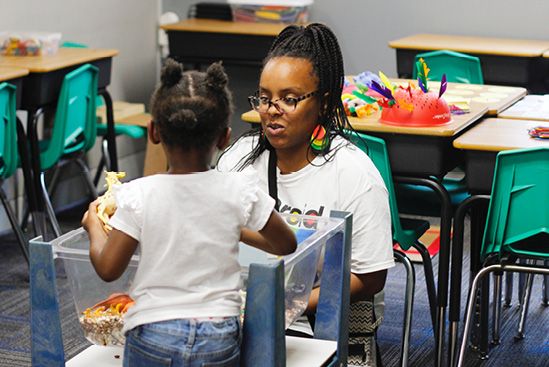
What words of encouragement do you have for providers who are considering joining Step Up to Quality or are still working through the steps?
Don’t give up. Believe in yourself, believe in your staff and build a positive morale. That morale will in turn go into your children.
Participating in Step Up to Quality is a major investment into your facility, and having that relationship with your coaches and having an open mindset will really boost the quality of your center. We went into Step Up to Quality with an open mind, and I think that’s how we were able to achieve a Step 5.
Activity Ideas for Celebrating Nebraska
Nebraska’s birthday is coming up on March 1, which is a great opportunity to incorporate Nebraska-related activities in your home or classroom. In honor of our state’s 156th birthday, here are some educational (and fun!) ideas to connect children’s learning to Nebraska’s history and present.
One approach to activities is exploring the history of Native American tribes in your area. Today, six tribes (Omaha, Winnebago, Ponca, Iowa, Santee Sioux, Sac and Fox) have reservations in Nebraska. You can use this website to input your address and find Indigenous territories that overlap with it. Once you’ve found that information, you can do further research about the way that tribe lived, how they grew food and about their current culture if the tribe is still in your area. To help present positive and accurate information, this blog post is a good starting point for the do’s and don’ts for teaching about Native Americans in preschool and kindergarten, including how to approach craft projects, how to select appropriate books and how to curb stereotypes that children may encounter.

You can also explore Nebraska through locally produced foods. Harvest of the Month is a statewide farm to school program that features a different Nebraska local product each month of the school year. The program promotes local fruits and vegetables, and it provides schools with resources to support sampling and serving local foods to students. If you’re interested in getting even more involved with local foods, the Nebraska Department of Education now hosts a comprehensive webpage for Farm to Preschool, providing guidance for providers and families on purchasing local and in-season foods, ideas for educational activities and use of gardens, tools for how to get started, and fact sheets and reports on Farm to Preschool research specific to Nebraska.

Interested in taking a more geological approach? For younger children, creating sensory bins with different Nebraska soils or rocks can be a fun and easy activity. For children who are a little older, you could create an aquifer bin to show what’s happening beneath our feet in 84% of the state.
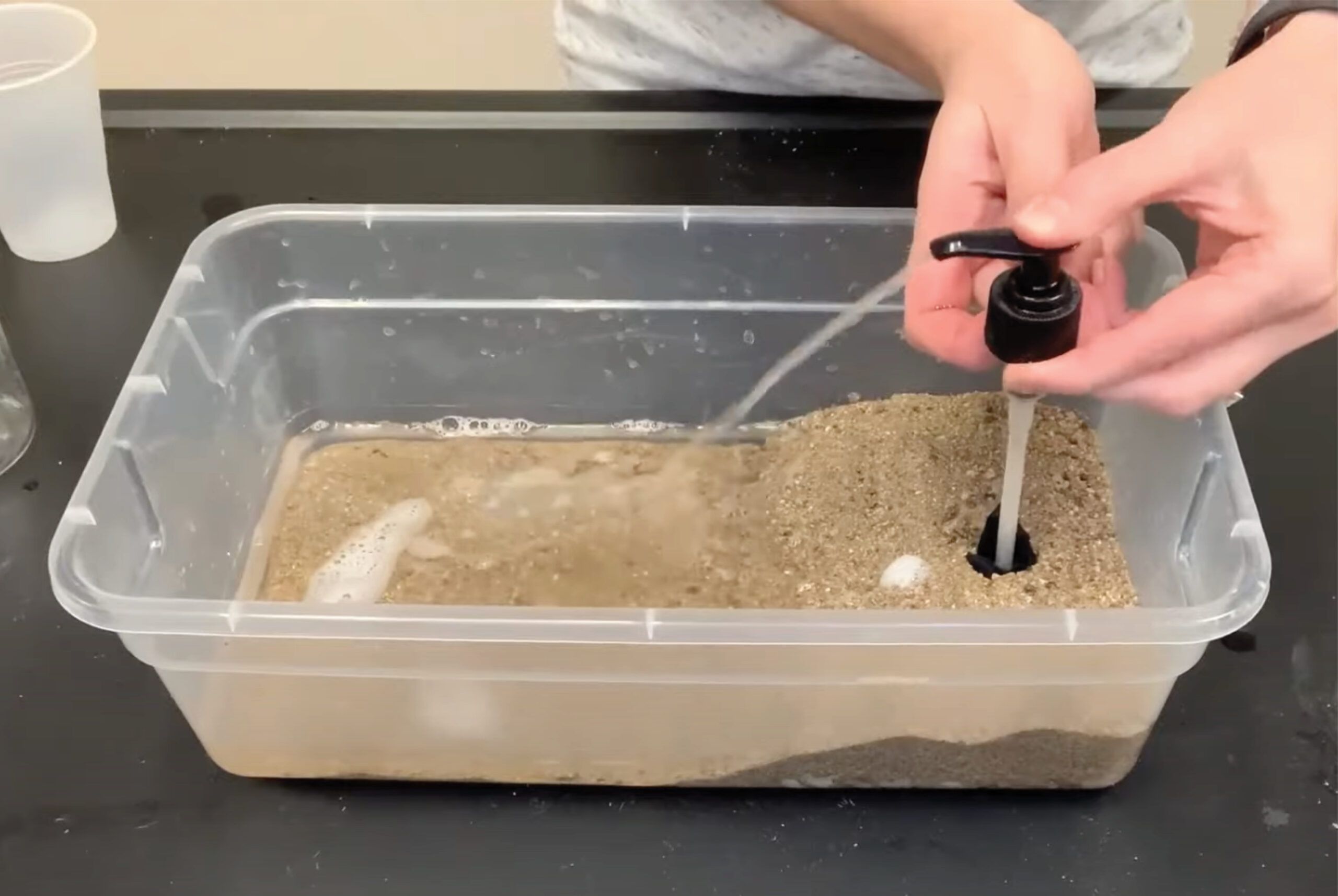
Guest speakers are always a great option, too, like a farmer who can talk about local livestock or crops, a meteorologist who can explain local weather patterns, a horticulturist who can discuss local flora and fauna, a historian who can dive into your area’s history, or a member of a local tribe who can share their culture. If you have the capacity to take a field trip, there are more than 40 museums or historical attractions across Nebraska, from The Durham Museum in Omaha, to The Archway in Kearney, to the Capitol building in Lincoln, to the Museum of Fur Trade in Chadron.

This is just a starting point for the many ways you can celebrate Nebraska’s history and present. We’re excited to see what you’ll try out, so be sure to tag Step Up to Quality on Instagram, Facebook or Twitter.
If you’re a child care provider who’s looking for even more ways to elevate the quality of your care, we’re here for you. Step Up to Quality has helped more than 650 Nebraska child care and early childhood education programs with supports and resources that improve quality. Learn more about getting started.
Step Up to Quality 2.0: The same program, even better
In the years since we launched Step Up to Quality, Nebraska’s Quality Rating and Improvement System, in 2014, the early childhood education field has continued to advance and evolve. And our Step Up to Quality team here in the Department of Early Childhood has learned a great deal about what works about our process in addition to what could be improved.
For those reasons and more, it was time to formally update our process.
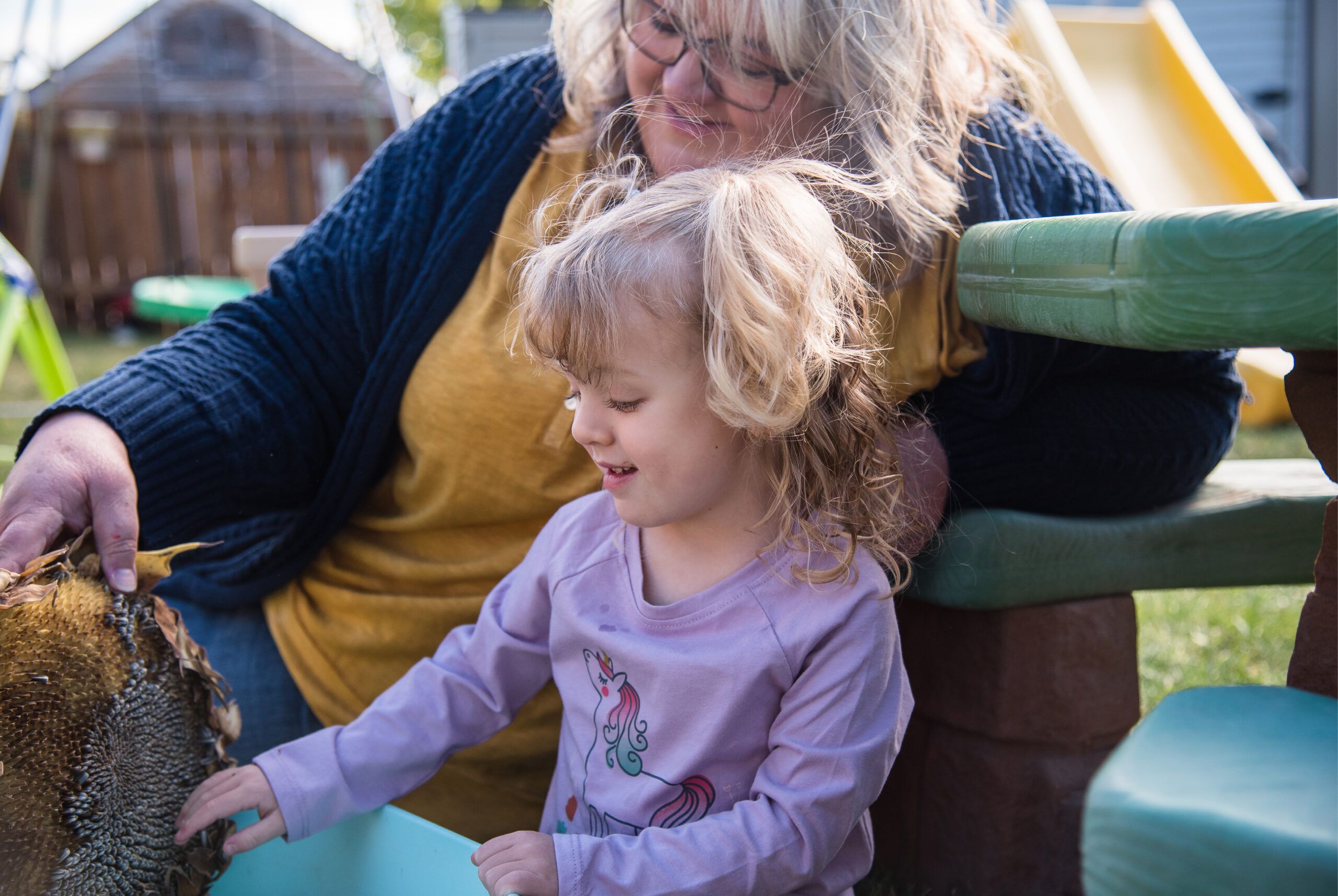
This decision was made before the pandemic, and no one thought it would take as long as it did. But after years of research, reflection and effort we have launched some exciting improvements to our 5 Steps.
First, we want to thank the hundreds of providers from across Nebraska who attended feedback sessions and filled out surveys, giving us first-hand insights on improvements they wanted to see. In addition, we worked with a committee of dozens of early childhood education professionals from various aspects of our profession, from nonprofits, advocacy organizations, universities and more. Their perspectives were invaluable, and we’re grateful for their insights as well.

We’ve called this project Step Up to Quality 2.0, but in reality, a lot hasn’t changed. We’re still Step Up to Quality, with the same goal of helping early childhood education professionals across Nebraska be the best versions of themselves to best care for the children and families who have placed their trust in them.
- We still have 5 Steps, and now they’re more customizable and allow for even more — and earlier —support for providers going through the process.
- We still have observations, except now providers can choose to forgo them to reach a Step 3.
- We still have a detailed list of quality indicators, and now we have even more indicator options for lots of opportunity for personalization based on individual strengths and program types.
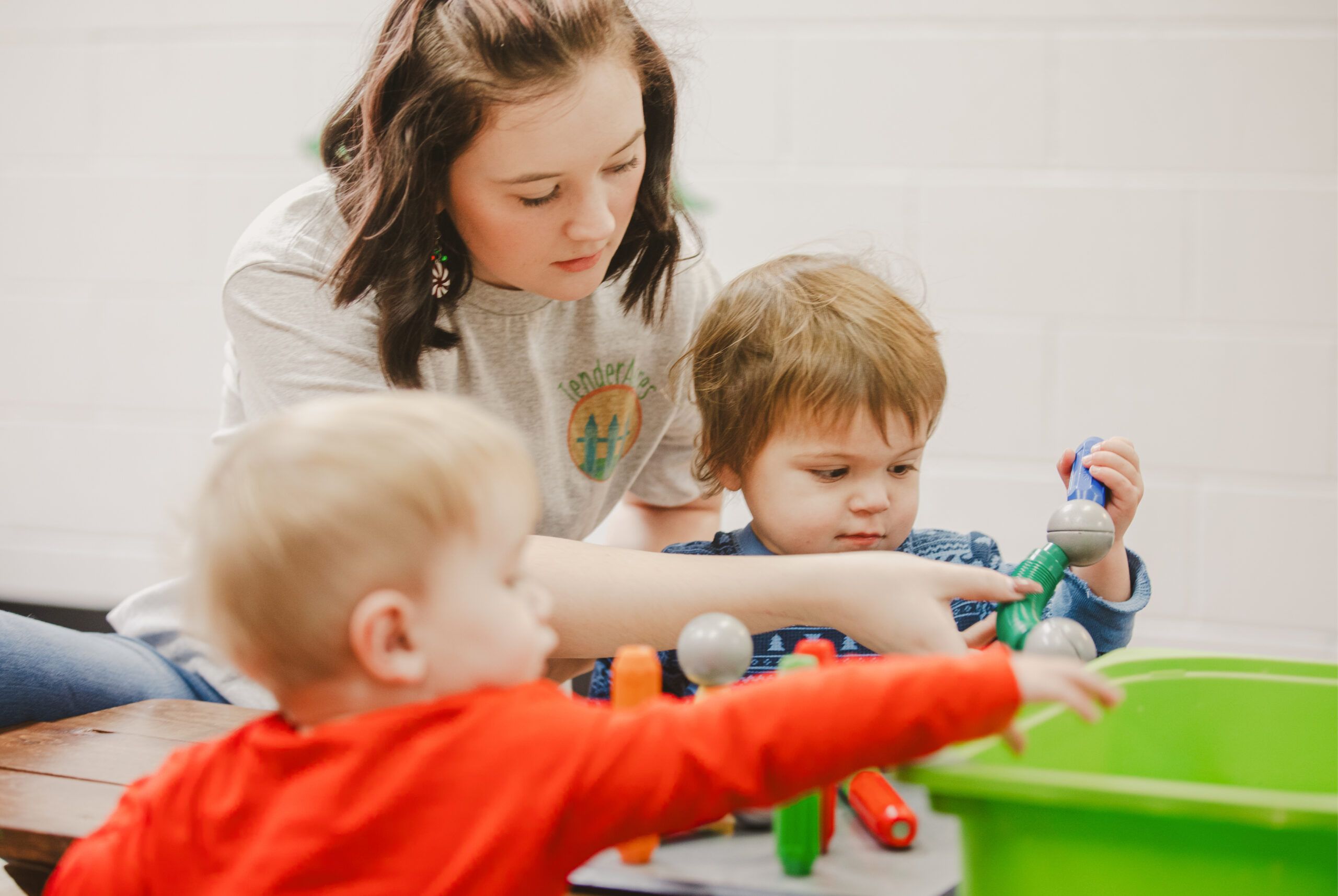
We also launched changes to Step 2, making it less overwhelming and time-consuming to complete. Learn more about the updates to the whole Step Up to Quality process and other new things we have in store for providers this year.
A special message to providers here in Nebraska who are not yet participating in Step Up to Quality: now is the best time to enroll! As part of Step Up to Quality 2.0, we’ve rolled out earlier coaching opportunities starting at Step 1. Be sure to download the new Program Guide, which outlines our process in great detail and provides you with a roadmap of all the steps.
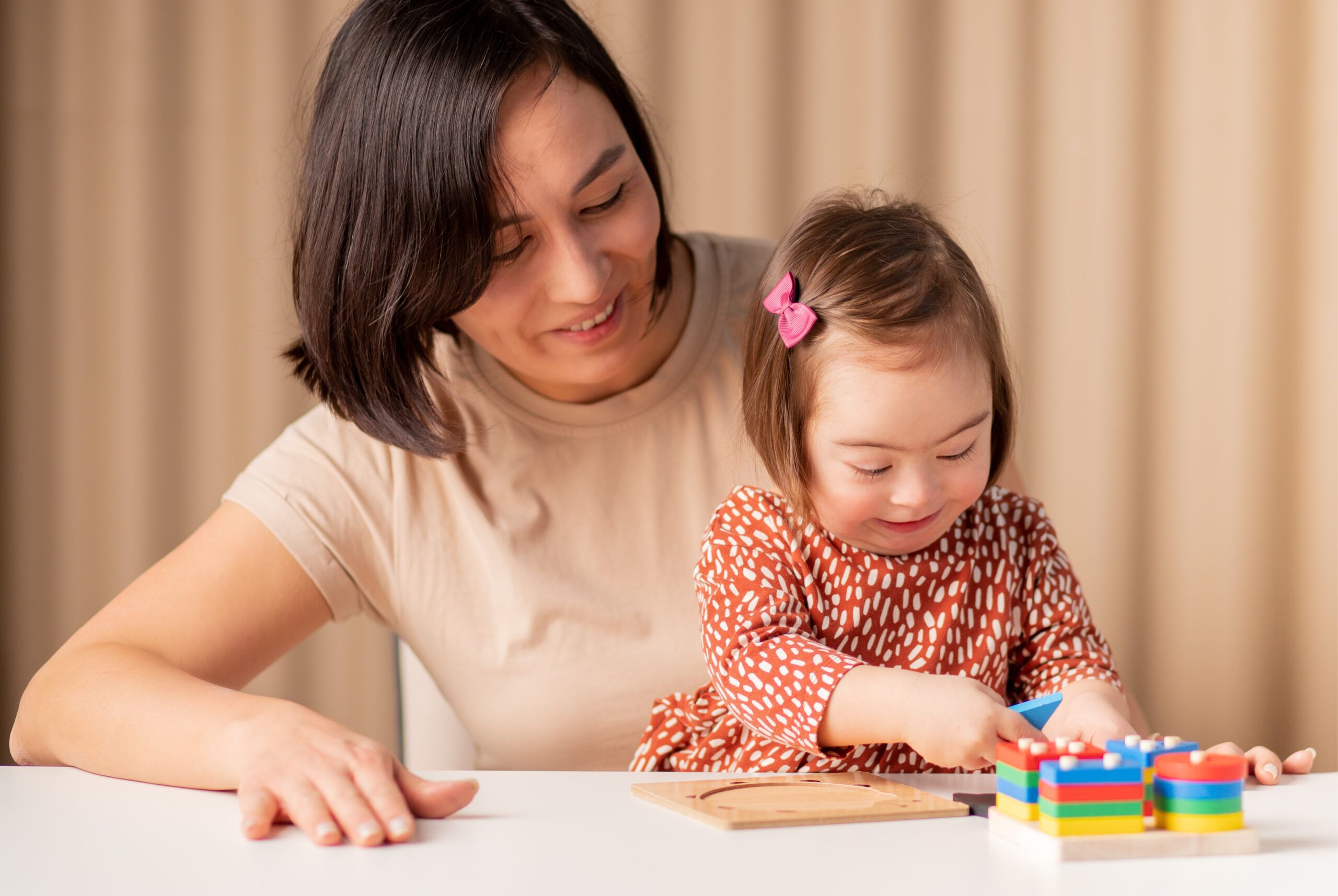
As always, we’re so thankful for each and every provider who is participating in Step Up to Quality. We are grateful for your continual commitment to quality care for our youngest Nebraskans. Thank you for all your support as we continue our commitment to making Step Up to Quality the best it can be for everyone connected to high-quality early childhood education in Nebraska. As our field continues to evolve, so will we.
How Observations Support Early Childhood Programs
Step Up to Quality helps Nebraska child care providers boost the quality of their care through our 5 Steps, which involve learning, training and observation. In this blog post, we’re focusing on our two types of observation tools, Environment Rating Scales (ERS) and Classroom Assessment Scoring System (CLASS), that we use to assess the quality that’s happening in early childhood programs in Steps 3-5.
The idea of having an observer come into your space and review your work can be intimidating, but observations give credibility to your program’s quality in addition to noting areas for growth. From a parent’s perspective, knowing that an objective early childhood professional has visited Step Up to Quality-rated programs is one more aspect of our process that provides peace of mind.
Before an observation ever occurs, we ensure that the provider has a solid understanding of and training with their chosen observation tool. Quality Specialist Jenny Fleming stresses that providers should not expect perfect scores when they have an observation done.
“Observers are not there to catch providers doing something ‘wrong,’” Jenny said. “Rather, observers are there to see all the great opportunities being offered to the children in their care and help them identify areas they can grow for the benefit of the children.”
What’s it like to be an observer? Observer/Environment Rating Scale Anchor Erica Timperley loves partnering with child care homes and classrooms to boost the quality of their care.
“As an observer, I see myself as a partner with the teacher to offer feedback and information from an outside perspective,” Erica said. “An observation is just a short snapshot of time compared to the amount of time and love our Nebraska teachers pour into their classrooms. I’m hopeful that teachers use the information from an observation to celebrate the wonderful things that are being done in their classroom already, continue to set new goals and reflect on what items they feel are most important to provide for the children in their room. Perfection is not required. Celebrate successes, applaud your progress and keep making new goals to enhance your program.”

Choosing an observation tool
The two types of observation tools are similar in many ways, but they each have unique focuses. Once providers achieve Step 1, they can choose which tool to hone in on by learning more on the Step Up to Quality website’s observation tools page or talking with a free, optional Step Up to Quality coach (available to providers who have achieved Step 1) or another member of our team. We also recommend attending both introduction trainings, which can be found and registered for on the NECPRS calendar, before making a decision. You may discover that one tool aligns better with your child care program or philosophy than the other.
Each of the two observation tools has introductions and higher-level trainings.
“When directors, teachers and home providers attend trainings for the ERS tools and/or CLASS tools, it increases their confidence,” Jenny said. “They are able to know what to expect when an observation will occur and feel better prepared.”

Environment Rating Scales (ERS)
Of the two observation types, ERS (FCCERS-3/ITERS-3/ECERS-3) has a broader focus and includes information on best practices for health and safety, building positive and supportive interactions, and offering ample and varied materials to children. There are different scales within the ERS: Infant/Toddler Environment Rating Scale (ITERS), Early Childhood Environment Rating Scale (ECERS) and Family Child Care Environment Rating Scale (FCCERS).
There are four training options for the ERS. The first recommended training is the introduction course: Introduction to the Environment Rating Scales (ITERS-3/ECERS-3) or Introduction to the Family Child Care Environment Rating Scale (FCCERS-3). During this training, providers learn how the scoring of the tools work, the philosophy behind the tools and a general overview.
After completing the intro course, we recommend a Closer Look training. These are specific to one scale and provide a more in-depth look at each item within it. After completing this training, you should have an excellent foundation of the ERS tool, but we do have additional options if you want to dig in further: You can attend an Item Analysis training where we dive in even deeper to each item and indicator in the scale, or you can join an observer in a classroom by signing up for our new Practice Using the ERS training.
The Practice Using the ERS is a full-day training where a group of participants applies the basic concepts shared in the introduction training. Small groups observe in early childhood programs and practice the observation and scoring process using one scale. After the observation is completed in the morning, the group gathers again in the afternoon to discuss the indicators of quality observed. If you’re interested in attending this training, you can now fill out this form to indicate interest in your area. You will be contacted once a trainer, observation site and participant group have been arranged, which can take between 30-90 days.
“It’s very exciting to offer this training for providers,” Erica said. “Not only is it a great opportunity for them to learn more about the ERS tools and continue to familiarize themselves with the information, it’s always fun for providers to get into different classrooms and homes to see the different strategies others are using.”

Classroom Assessment Scoring System (CLASS)
CLASS is more heavily focused on the interaction pieces in the classroom, helping build quality relationships and encouraging teachers to focus on those deeper-level learning moments. CLASS measures the effectiveness of classroom interactions among teachers and children, including emotional support, classroom organization and instructional support. These daily interactions promote children’s social and cognitive development.
CLASS observation tools have been developed for Infant, Toddler, PreK-3rd, Upper Elementary and Secondary age groups. For every age group, there are two levels of training that focus on interactions that support learning. Family child care providers will want to focus specifically on the Toddler CLASS trainings, whereas center-based programs can choose between the Infant, Toddler and/or PreK-3rd CLASS trainings.
The two types of trainings offered for CLASS are the Introduction to the CLASS or the CLASS Observation training. If you’re looking for a basic overview of the CLASS tool, the four-hour Introduction to the Infant, Toddler, or PreK CLASS training is recommended. If you’re interested in not only receiving the introductory-level training but also learning the full scope of the CLASS tool with the option to certify at an observer level, we encourage enrollment in the Infant, Toddler, or PreK-3rd CLASS Observation training. The introduction training is not a prerequisite to the observation training — you can take the observation training without having any experience with or knowledge of the CLASS tool.

Interested in becoming an observer?
The Nebraska Department of Education, Office of Early Childhood is recruiting observers for Step Up to Quality in community child care programs, family child care homes, school district programs, Head Start programs and for Results Matter in public school district early childhood programs. Beyond completing appropriate training, candidates should have a passion for quality care for children in the early childhood field, an eye for detail and the ability to leave their opinions at the door to ensure consistency between observations. Learn more and apply at the bottom of this page.
The Many Ways Signing Up for NECPRS Benefits Early Childhood Professionals
The first step of a Step Up to Quality journey includes having directors and staff create profiles in the Nebraska Early Childhood Professional Record System (NECPRS). If your program is already enrolled in Step Up to Quality, you may have completed this task and forgotten about it. If you’re considering joining us, we have great news: NECPRS is an easy-to-use, valuable, professional tool, and signing up in the system only takes a bit longer than reading this blog post.
Benefits of NECPRS
NECPRS was developed by the Nebraska Department of Education as an online record system to support early childhood professionals. In addition to hosting the Step Up to Quality application process, this system allows professionals to upload and store their records in one place, even as they change employers. No more tracking down paper documents — simply sign up once to ensure your professional information is saved and secure throughout your career.

Another important task NECPRS accomplishes is verifying licensing records for early care and learning professionals. The NDE Office of Early Childhood approves all training that is entered into NECPRS, and this training record can be shared with DHHS Licensing. Moving to an electronic reporting system makes it easier for licensing personnel and child care professionals to do their job and results in significant cost and procedural efficiencies for both state government and child care providers.
A more recent update allows users to grant access to their records so employers can view their staff’s completed training or add training certificates on their behalf. If you change jobs, your account will follow, and you can update who has permission to view your information. Need to change your email or password? You don’t have to create a new account for a new job — it’s all editable within the system.

To support early childhood professional development, NECPRS also provides a training calendar. This feature is helpful to both find upcoming trainings and seamlessly track the trainings you’ve completed. If you’re a Step Up to Quality participant, some of these trainings are available at a reduced rate!
Signing up for NECPRS
Anyone working in early childhood can create a NECPRS account. Setting up an account should take no longer than 15 minutes. Since the site is mobile friendly, multiple staff members can create accounts at the same time on their own devices. Each person will add their name, date of birth, education level and employer information. You can also “build your professional record” with previous employment information, full education history, professional credentials and previous trainings, but this information can be uploaded at a later time if necessary.
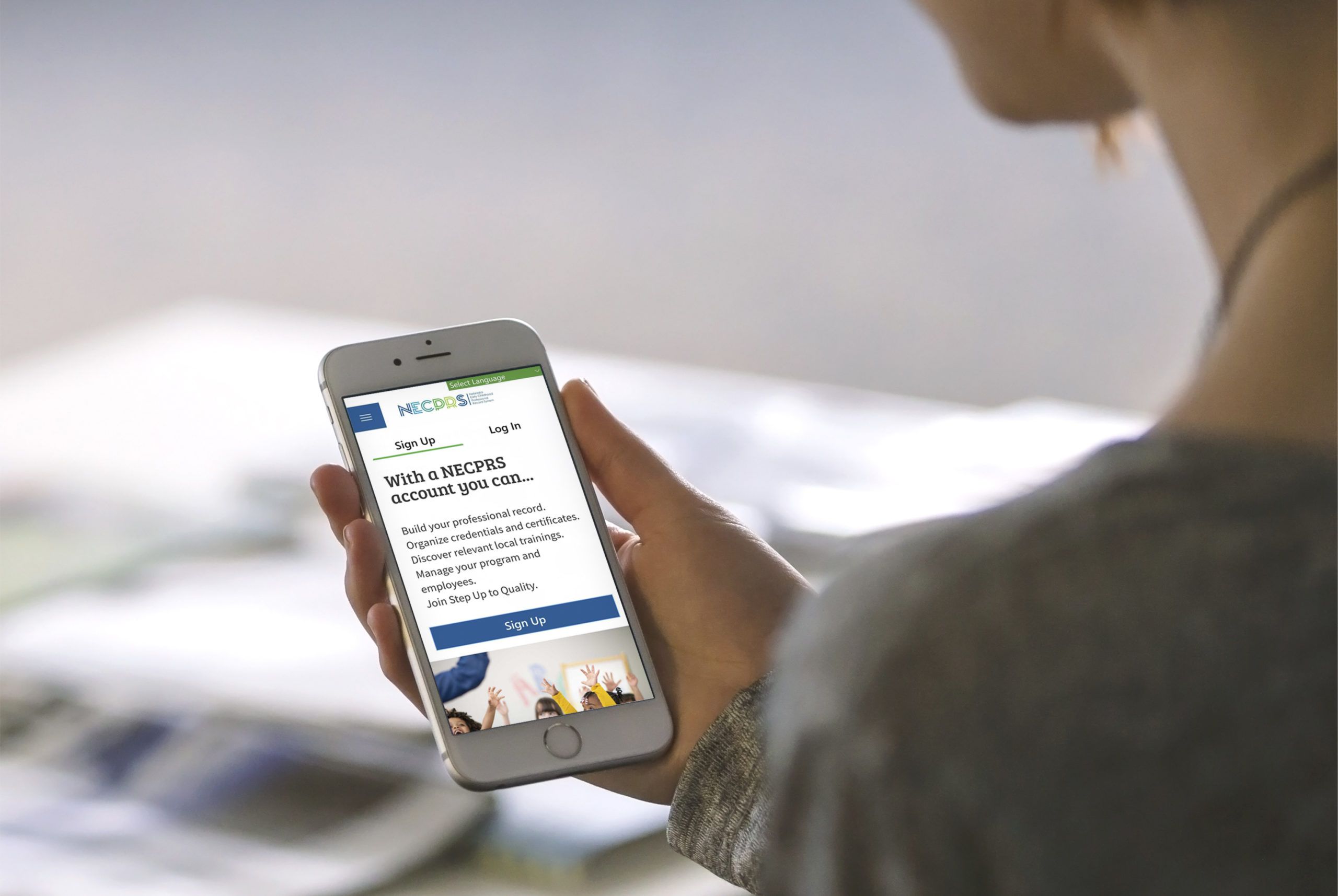
If you need additional help signing up, here are step-by-step guides in English and Spanish.
Creating a NECPRS account is more than checking a box, it’s a professional tool for you to store and display your credentials, find training opportunities and help our state have a better understanding of the early childhood landscape. Sign up today!



